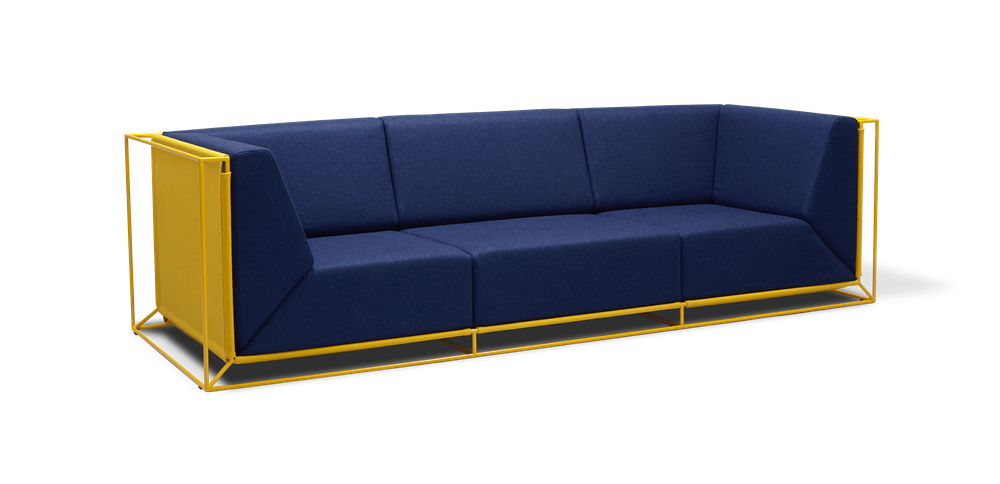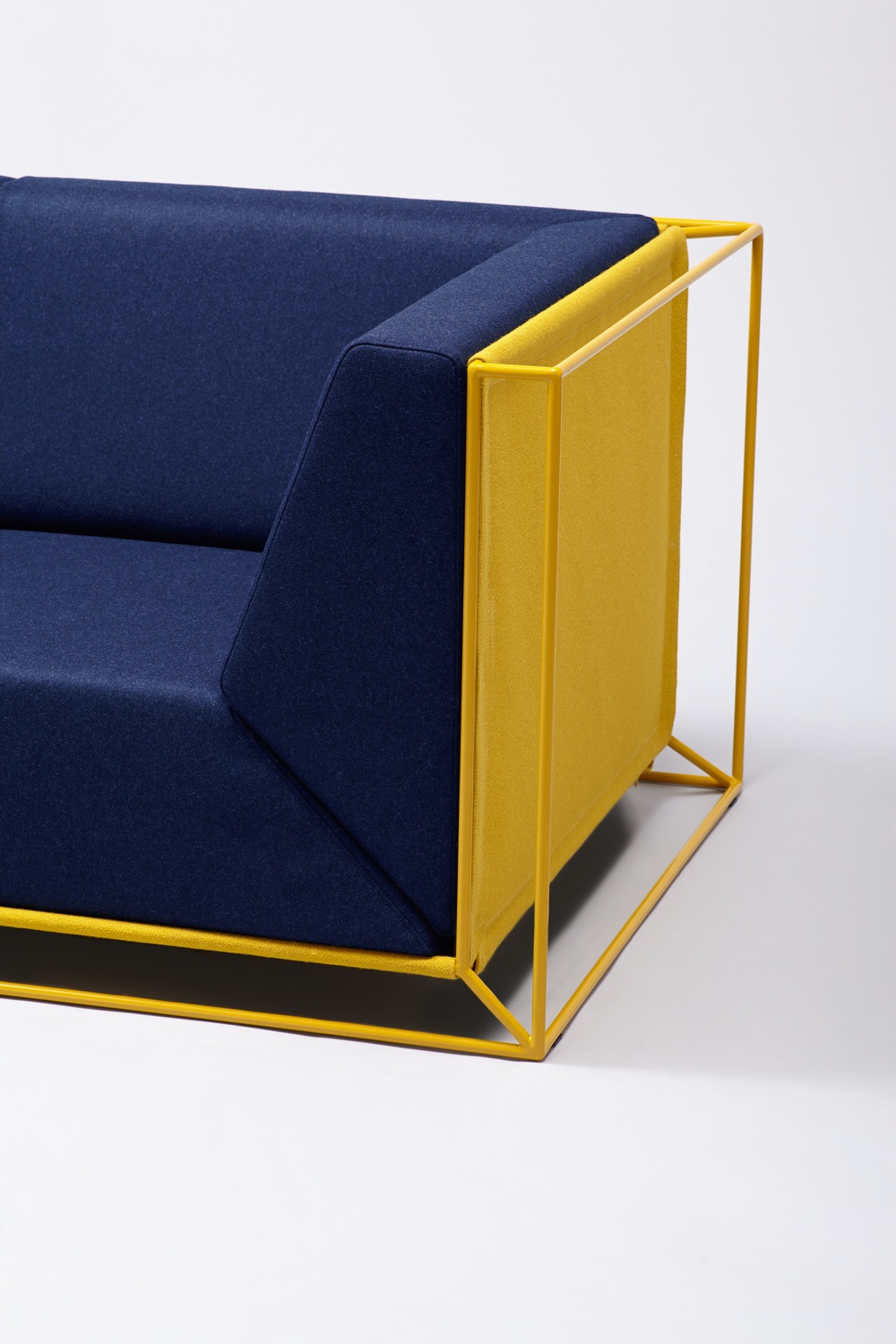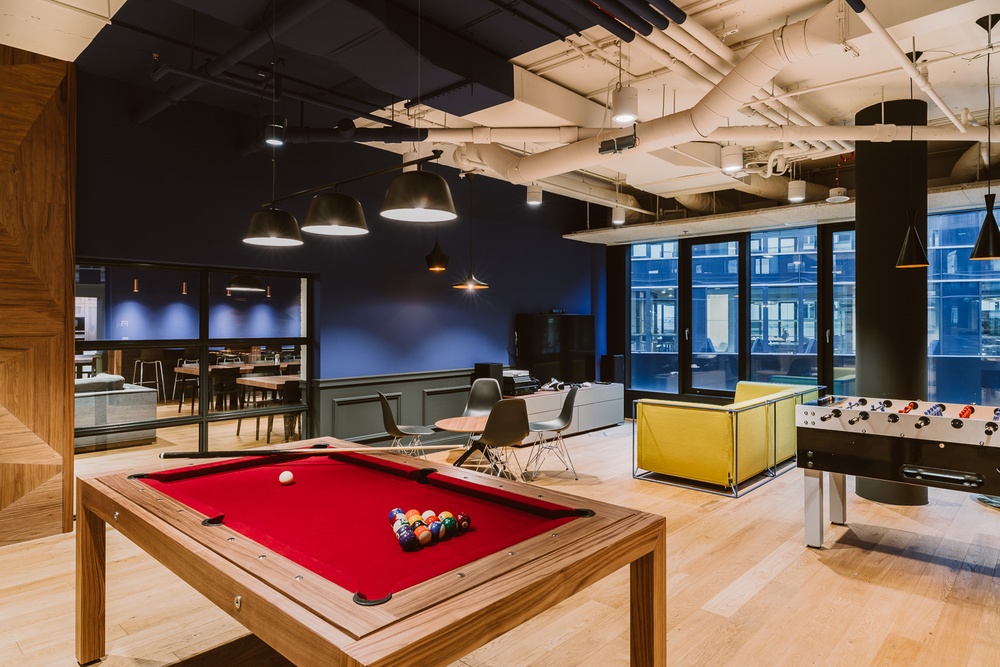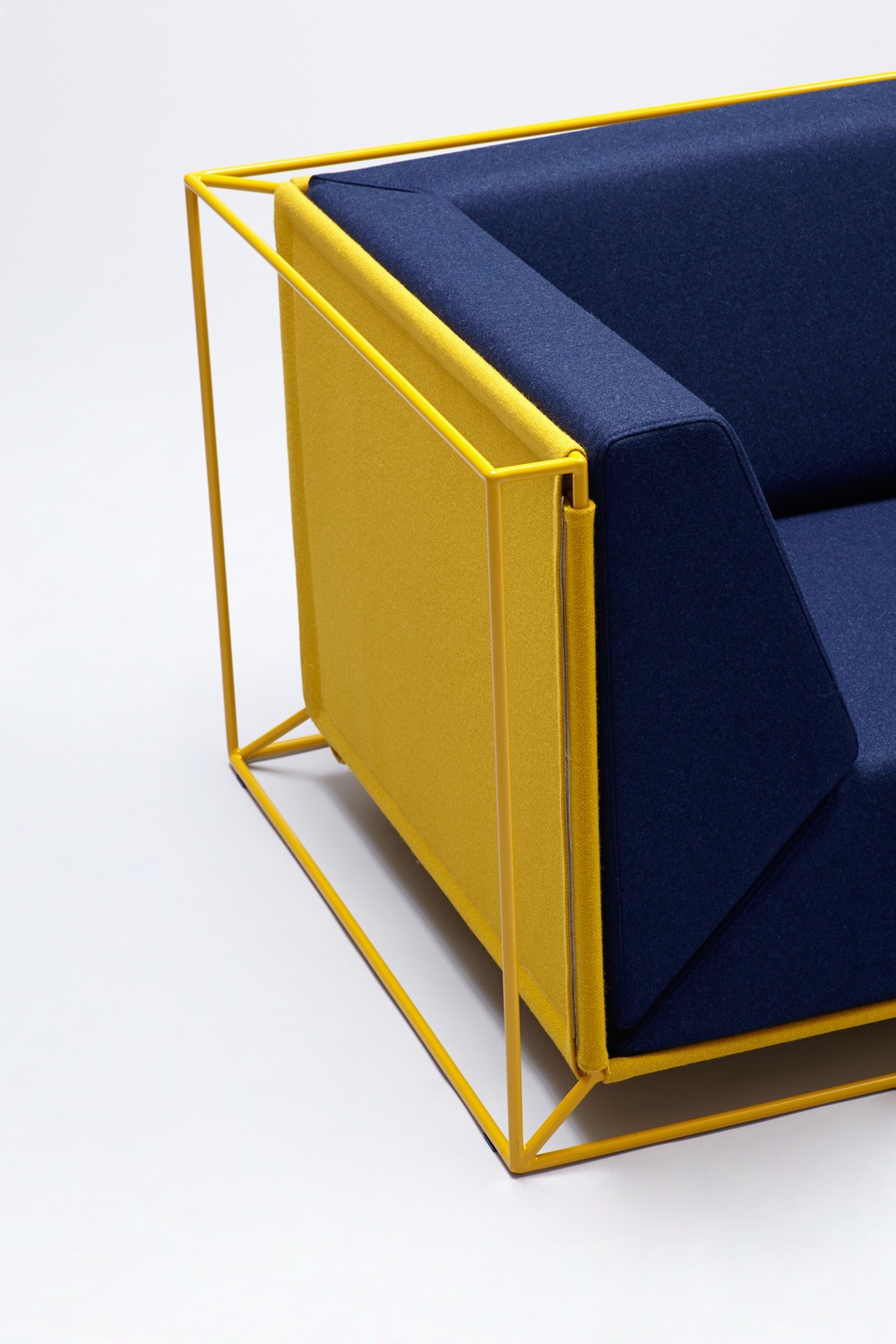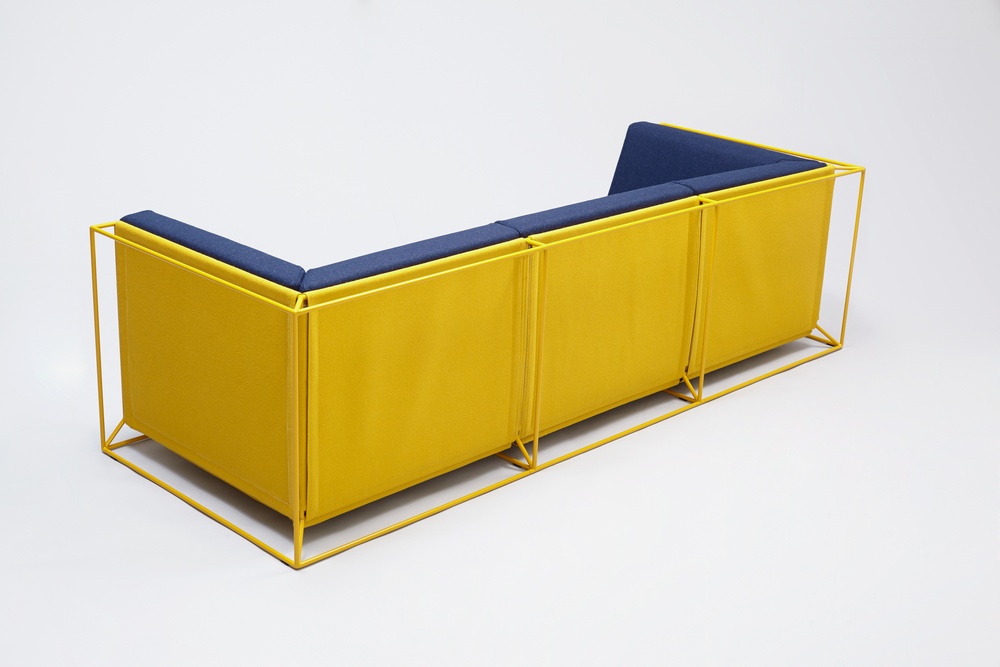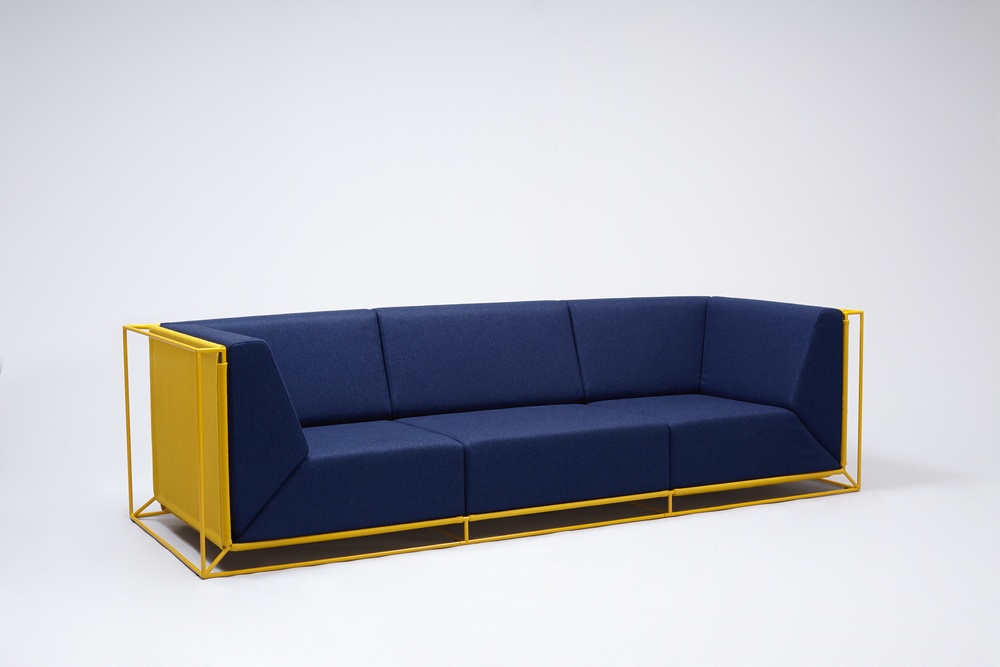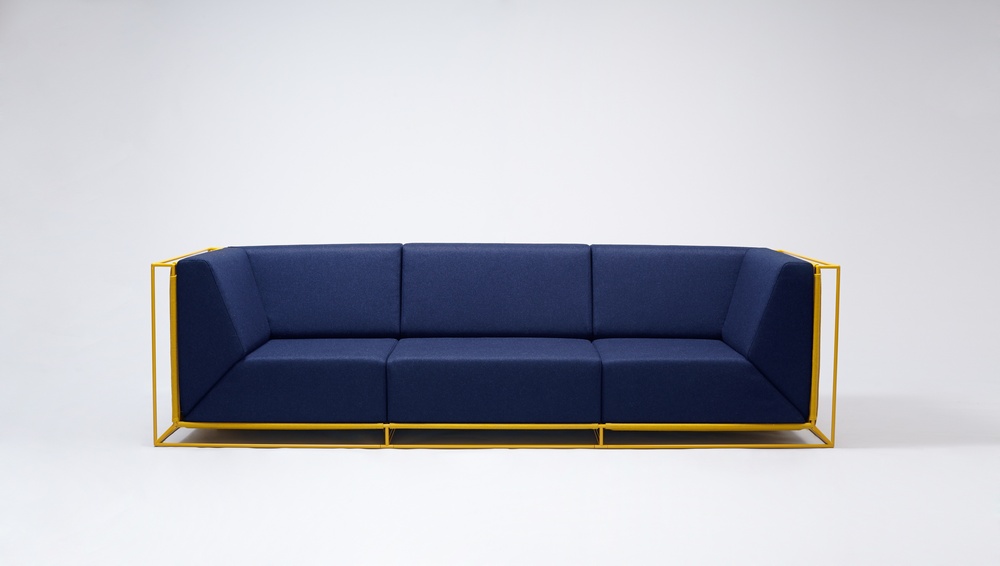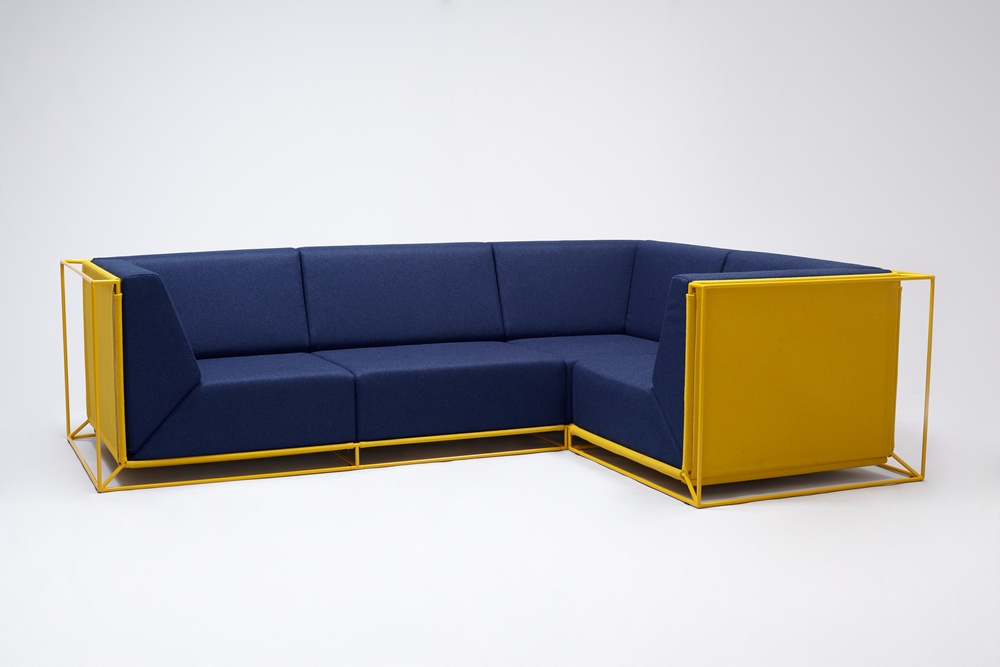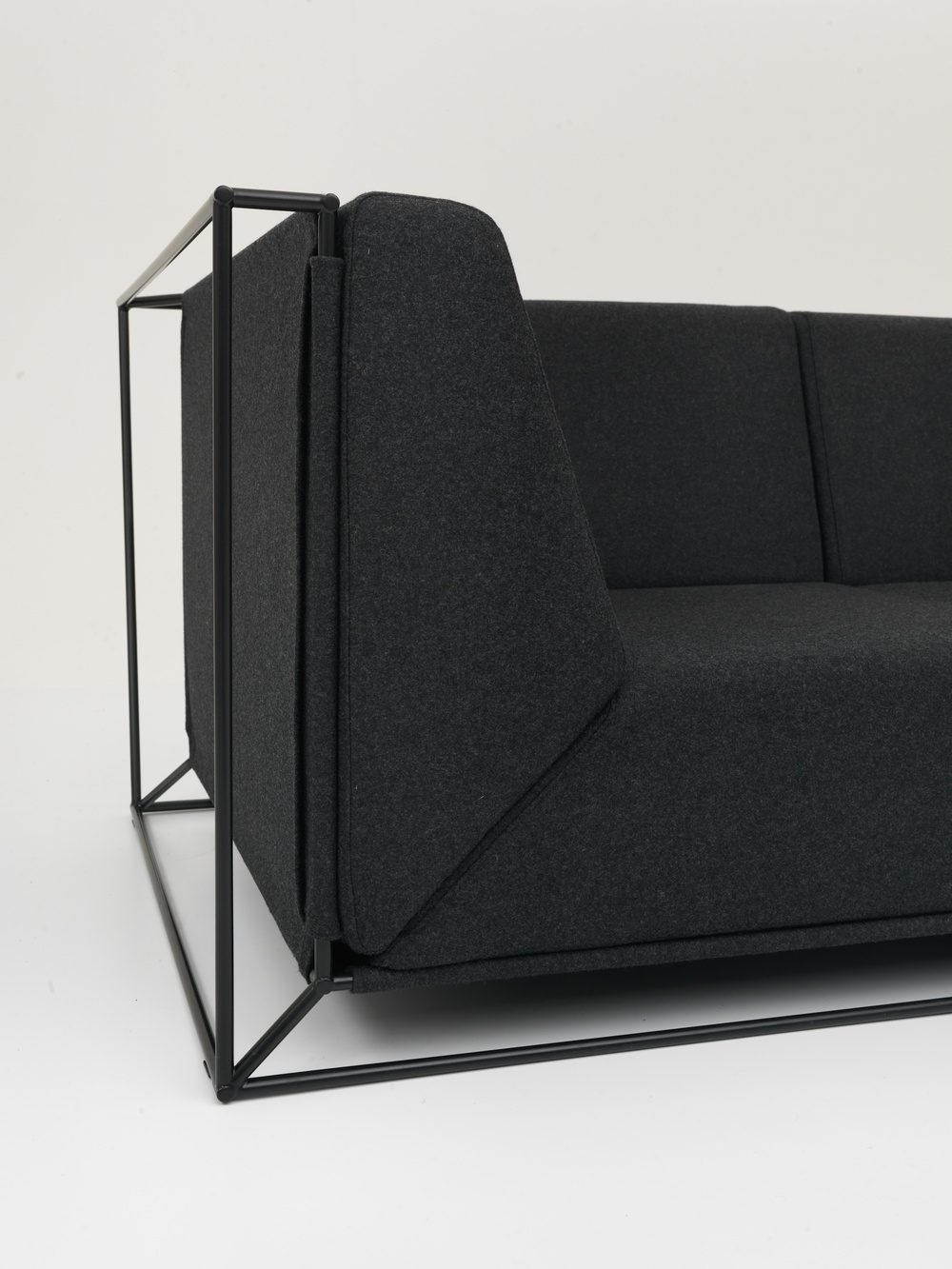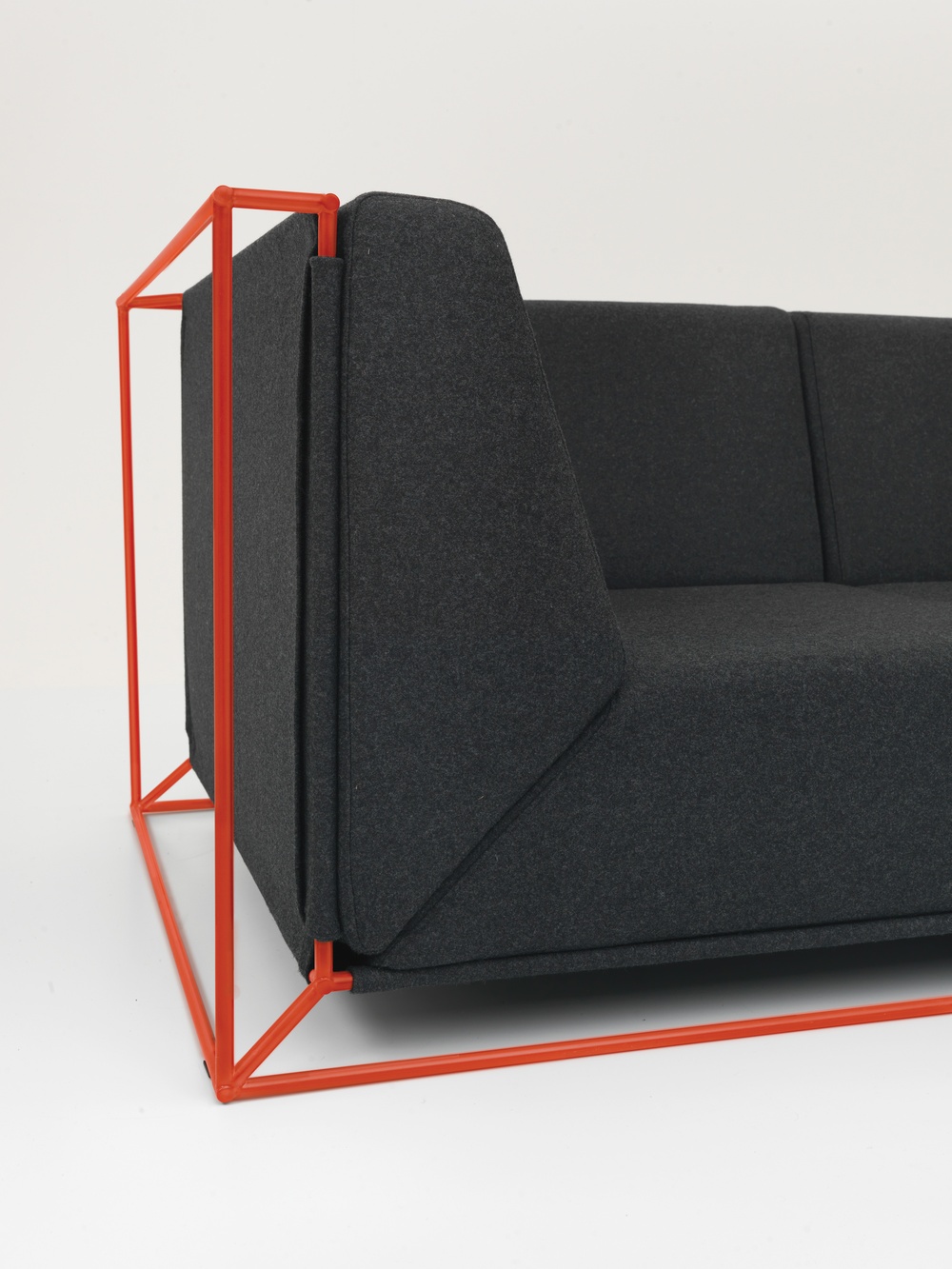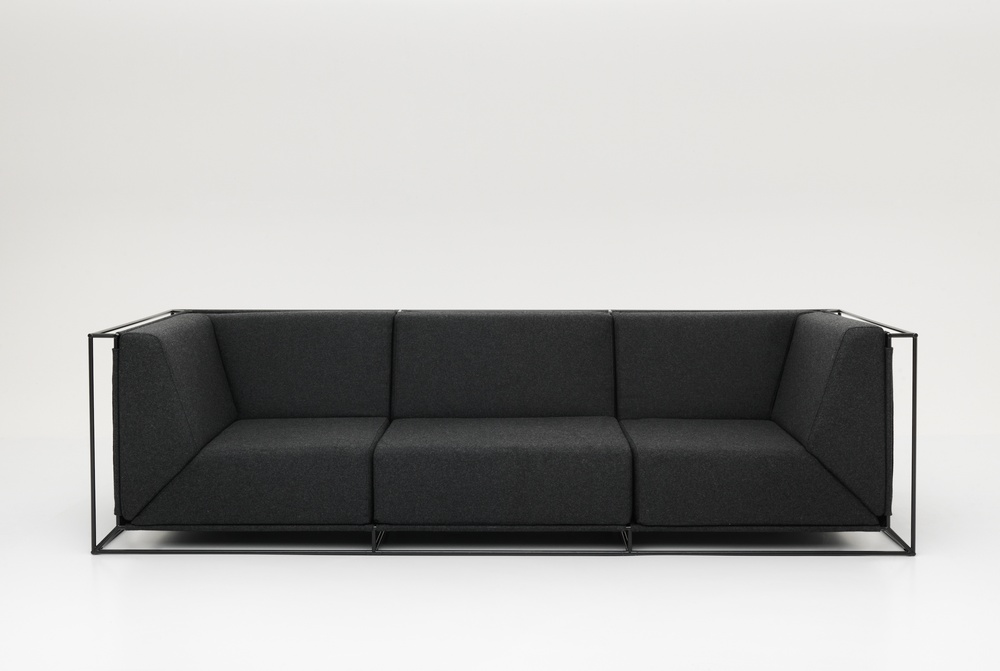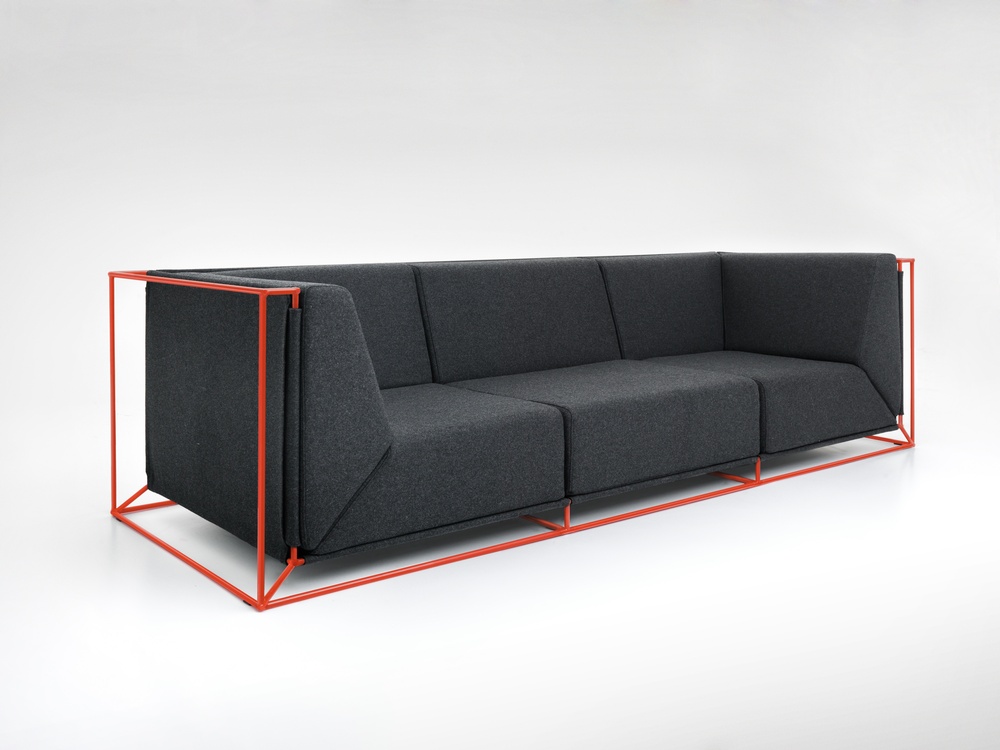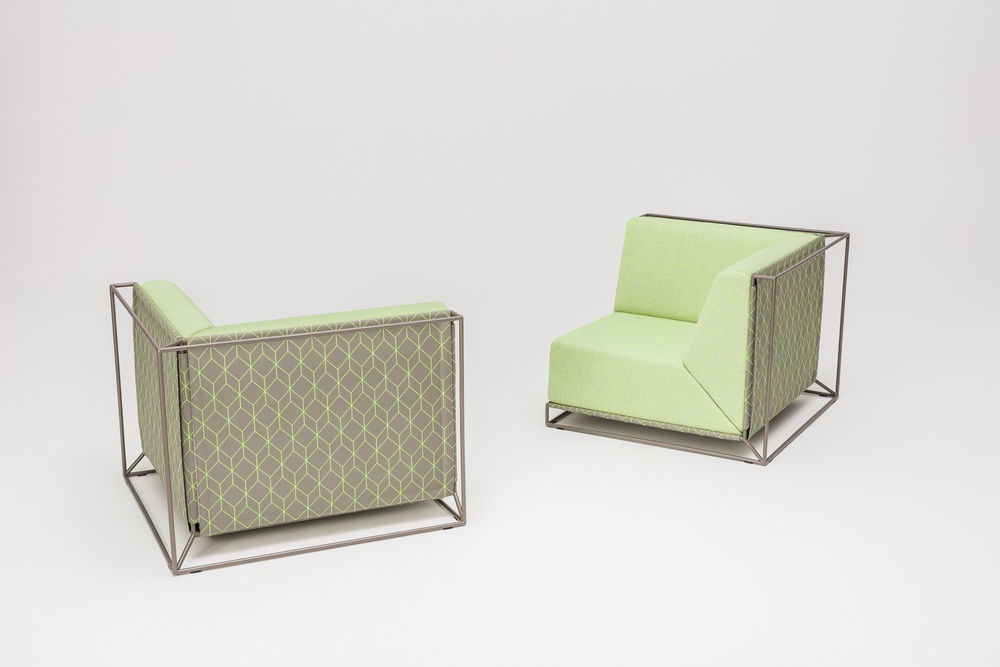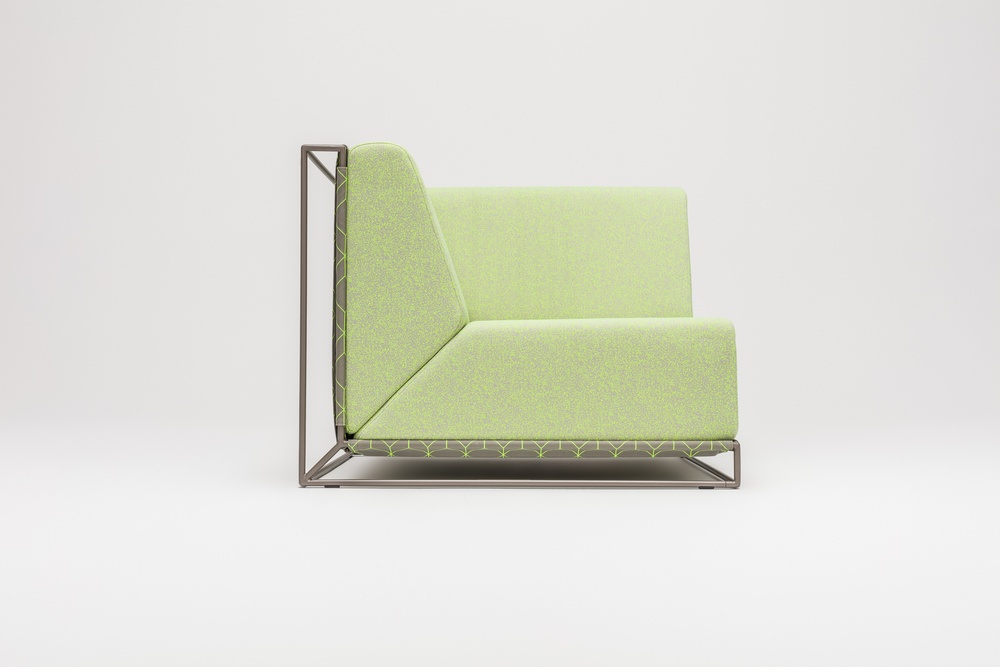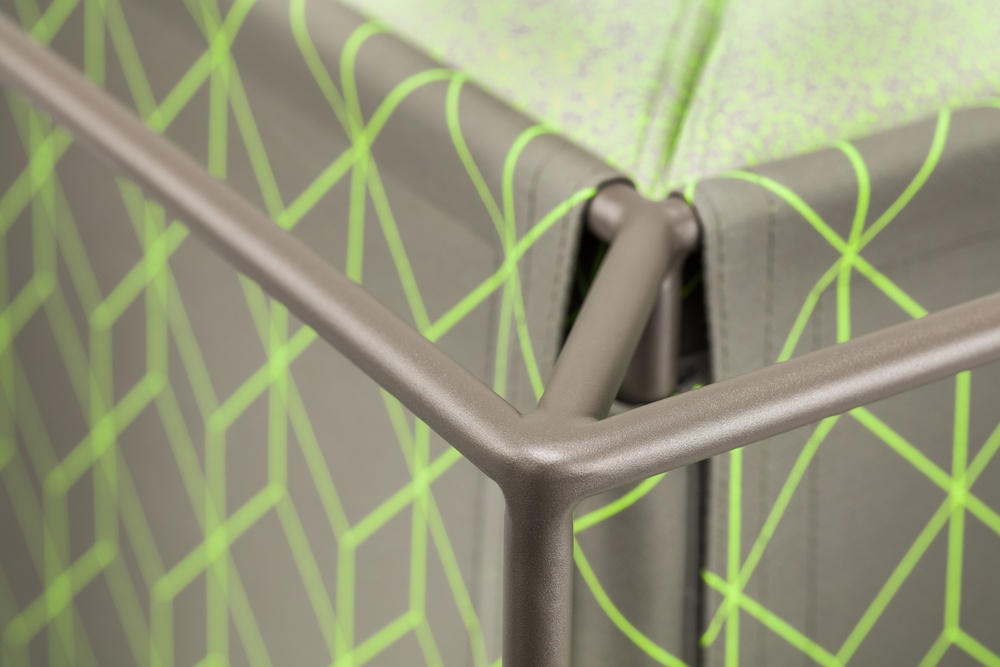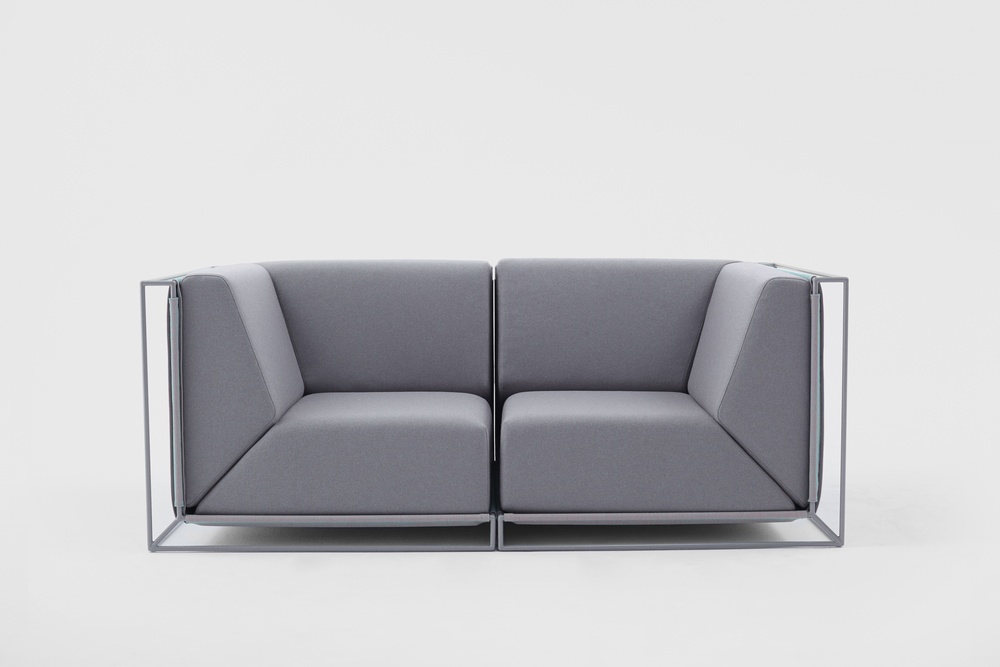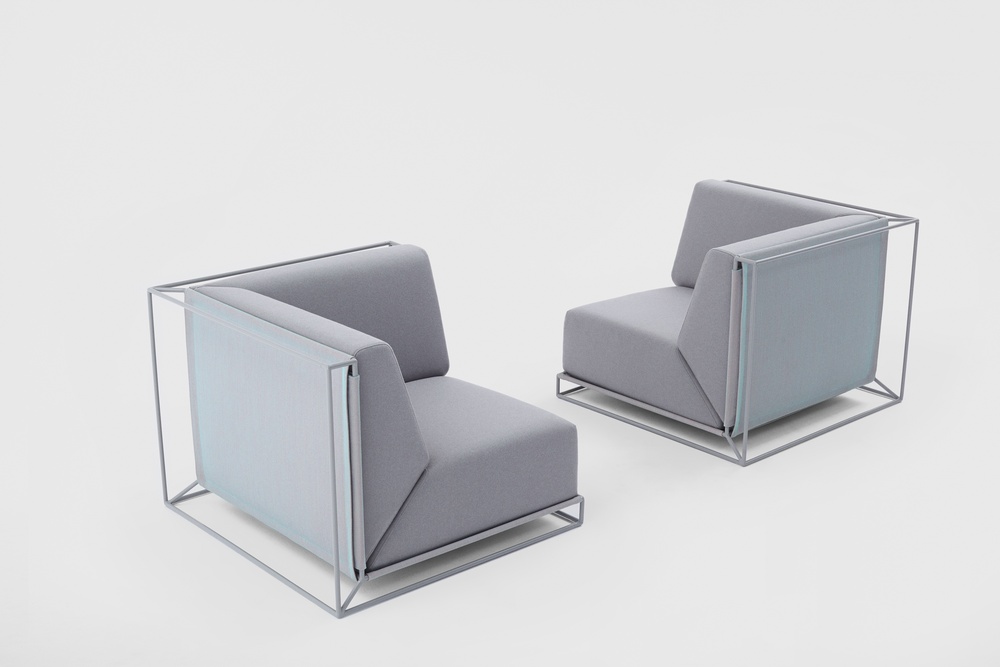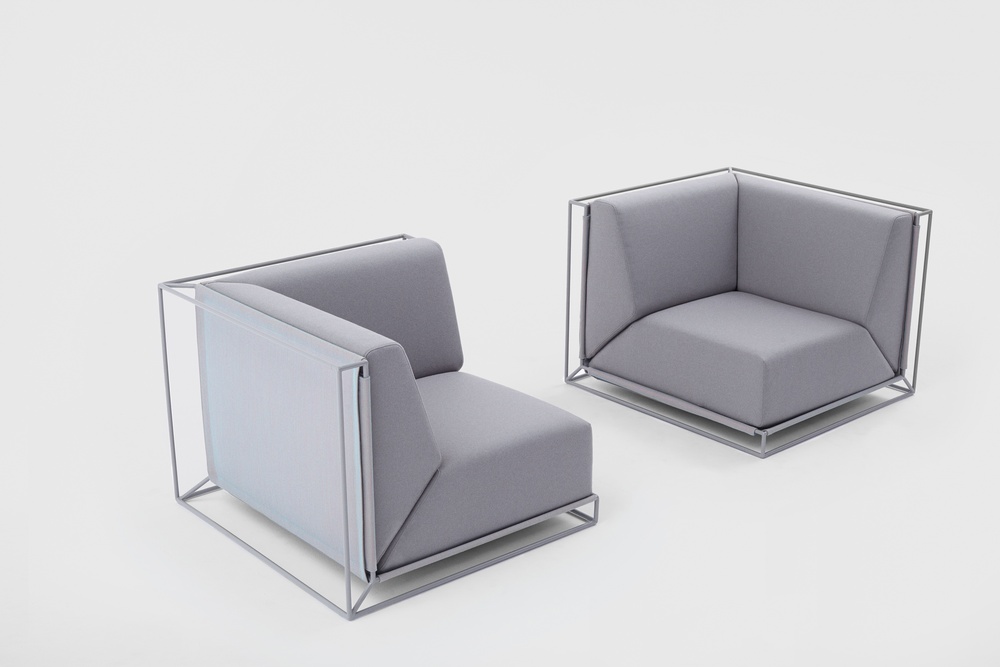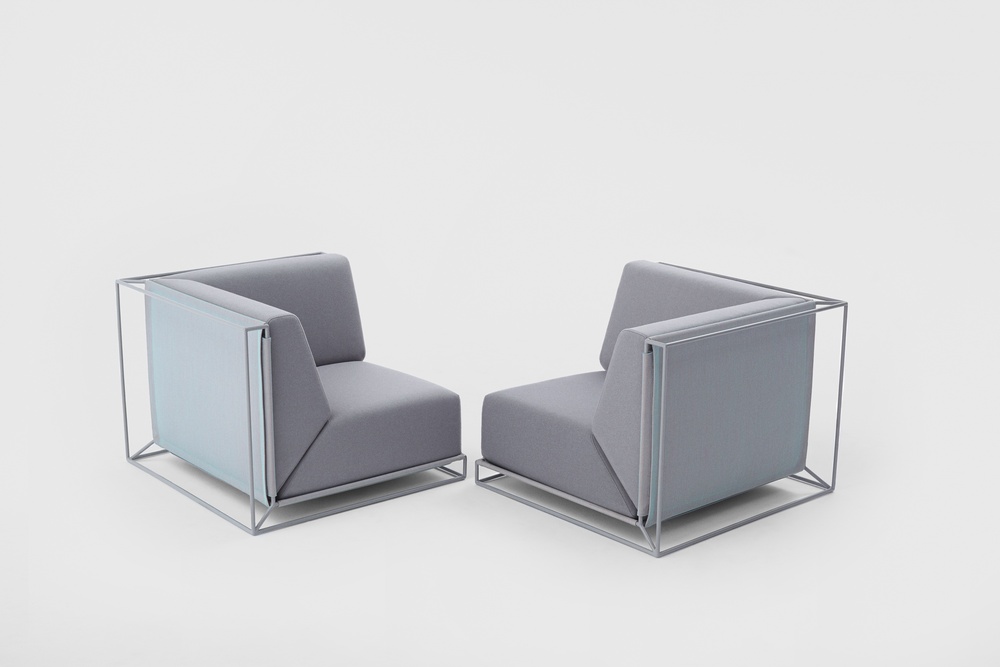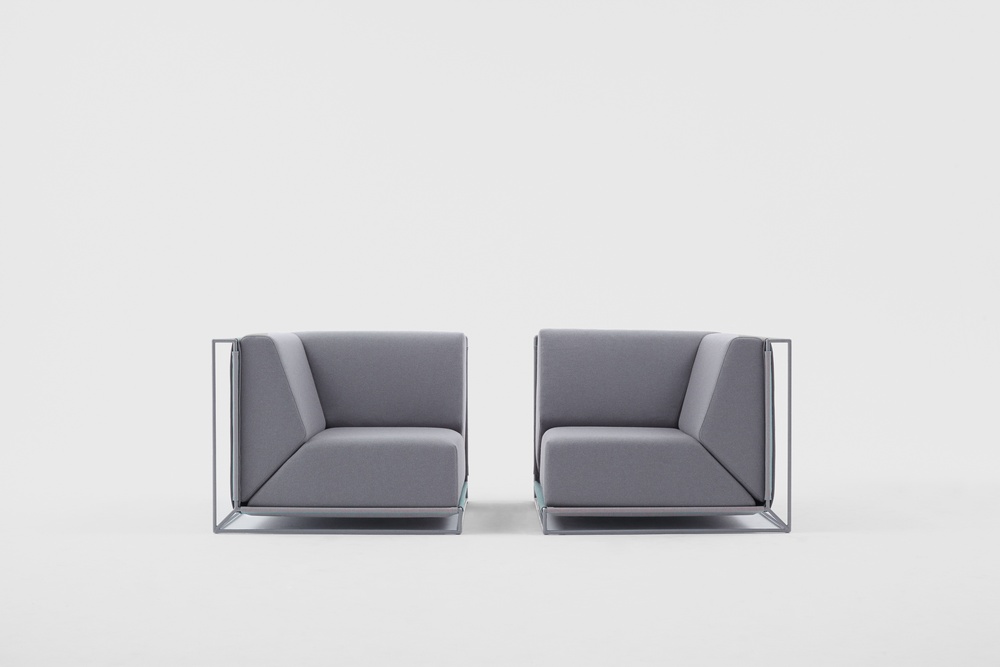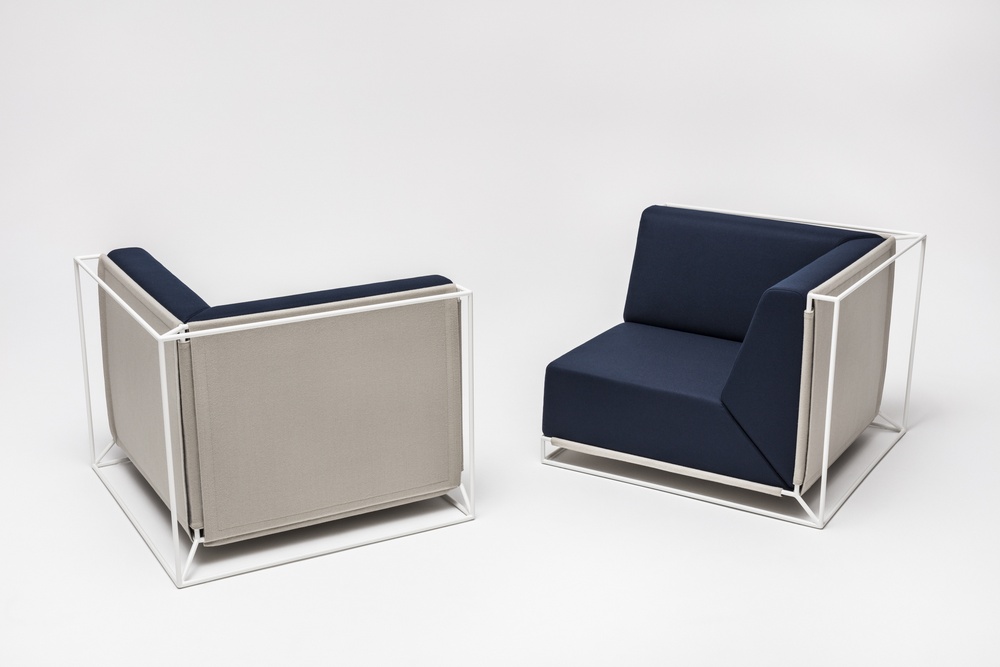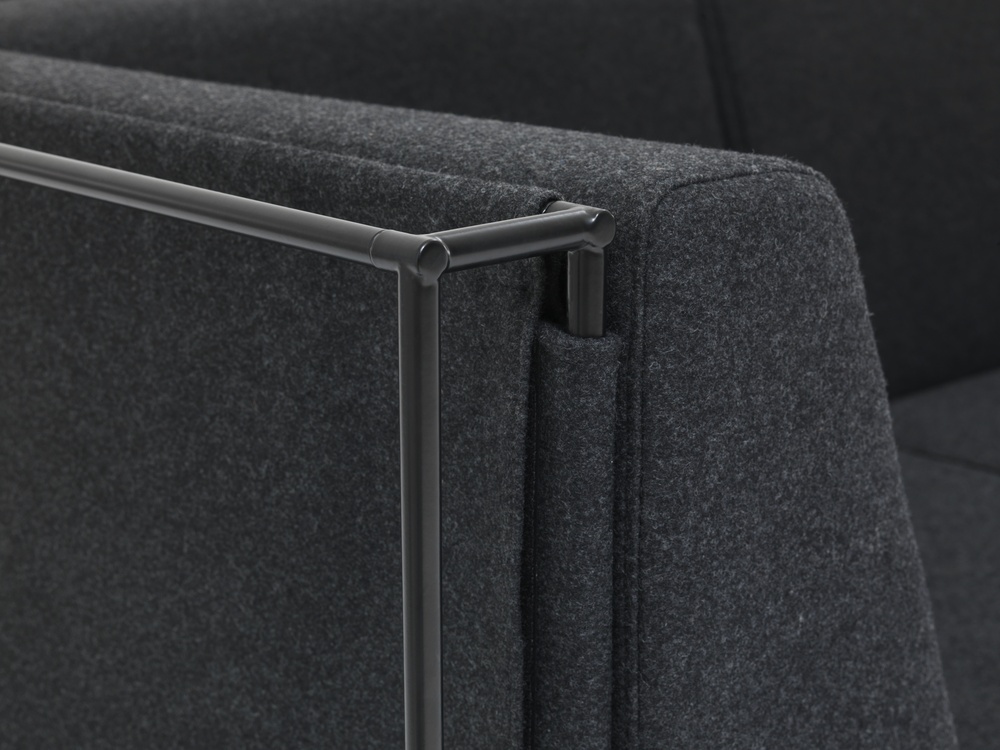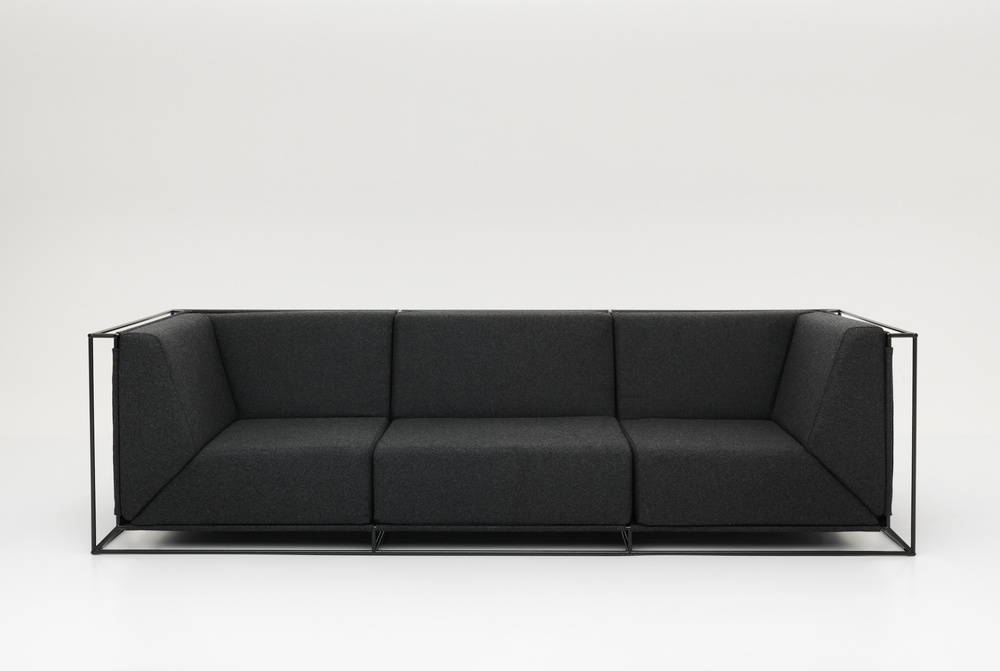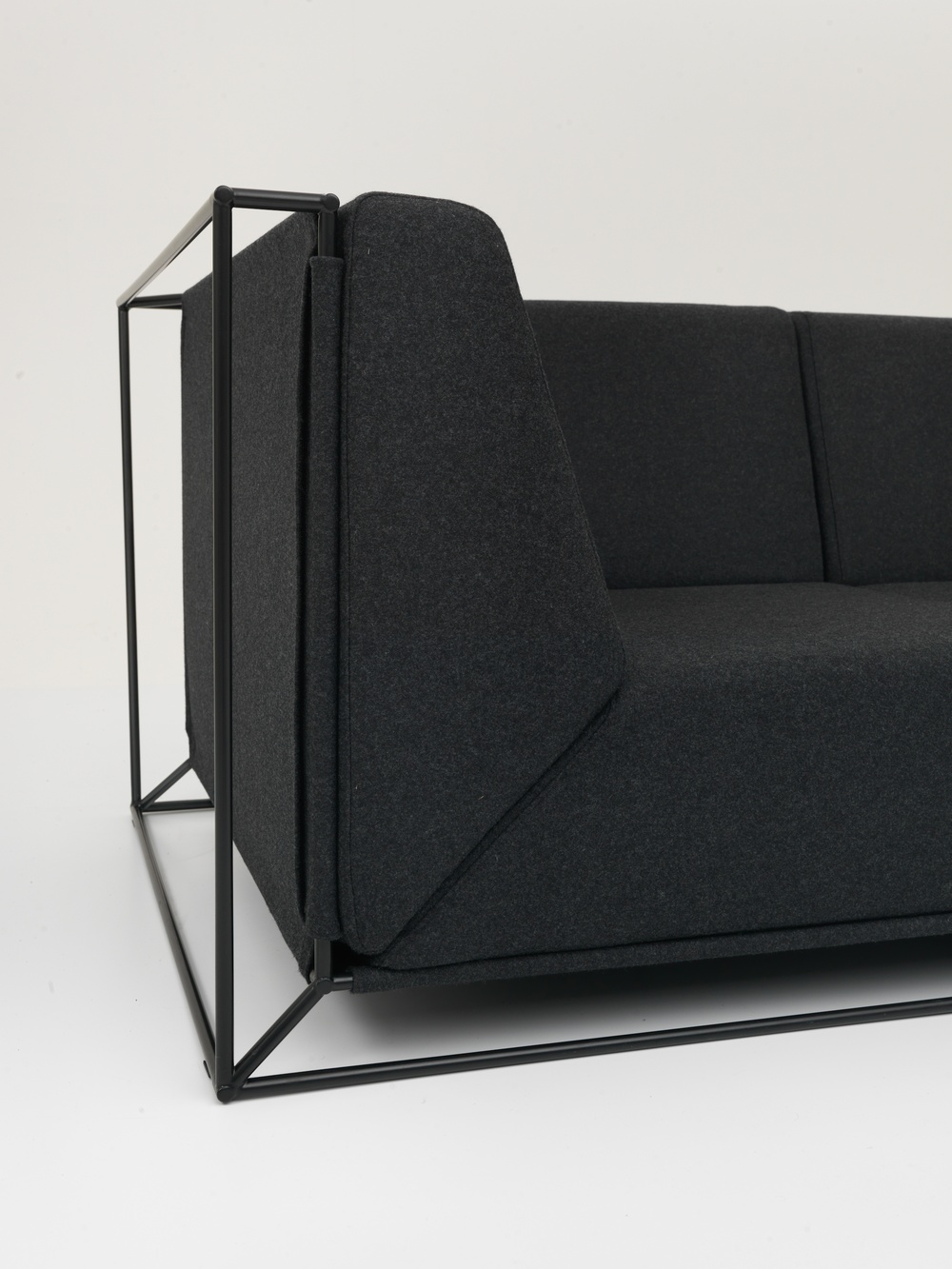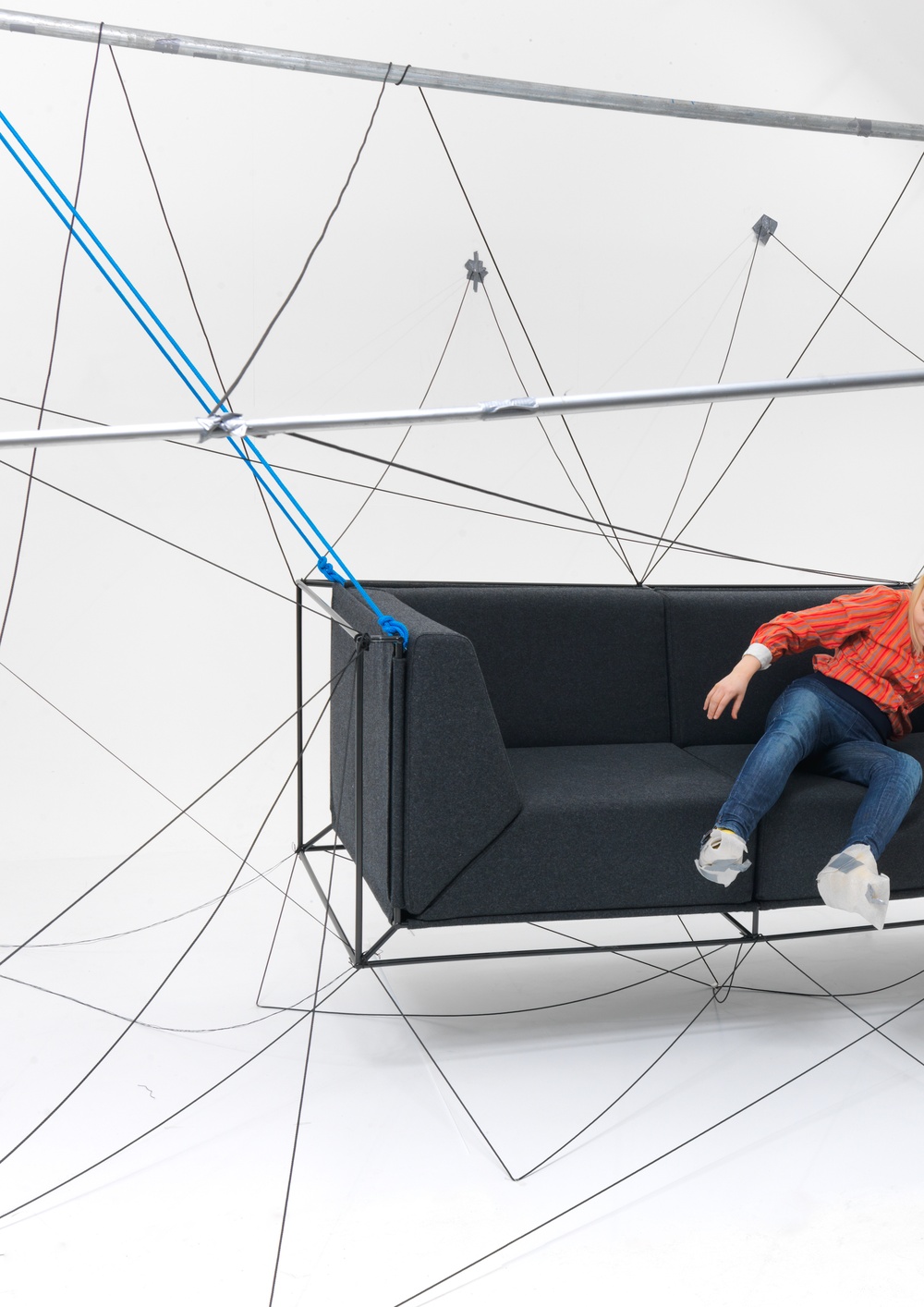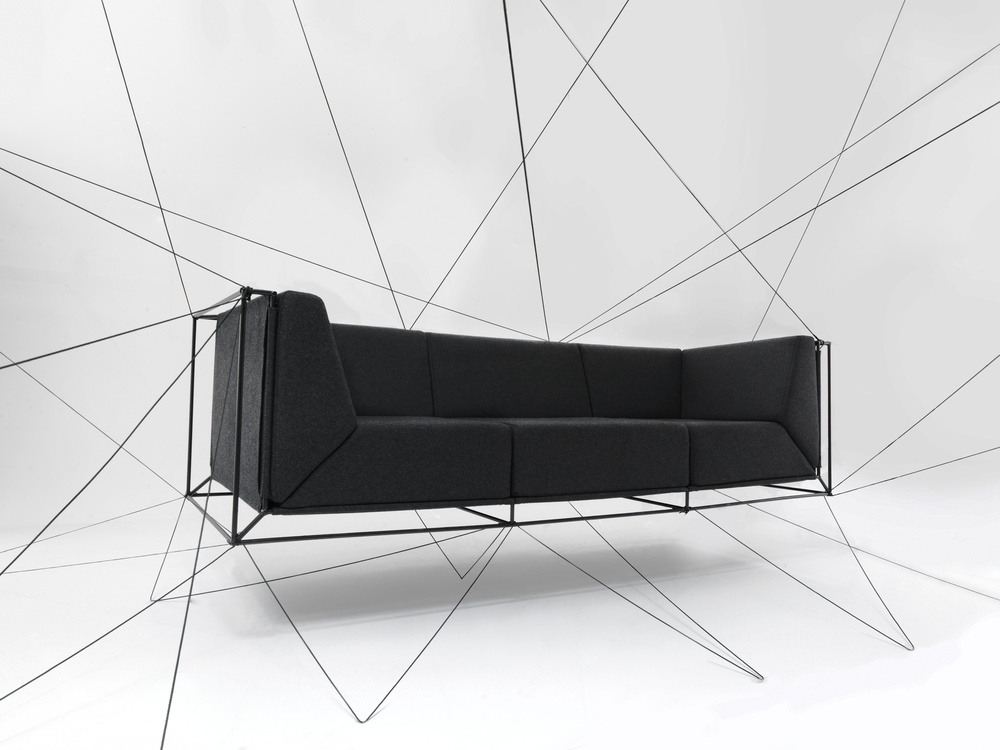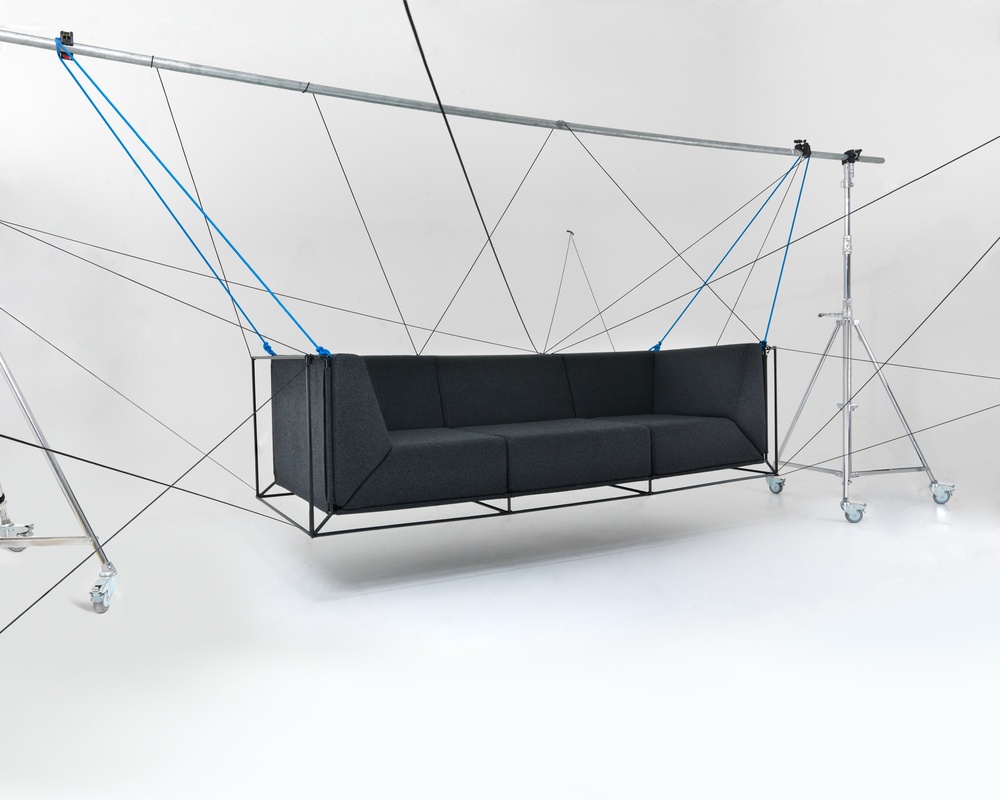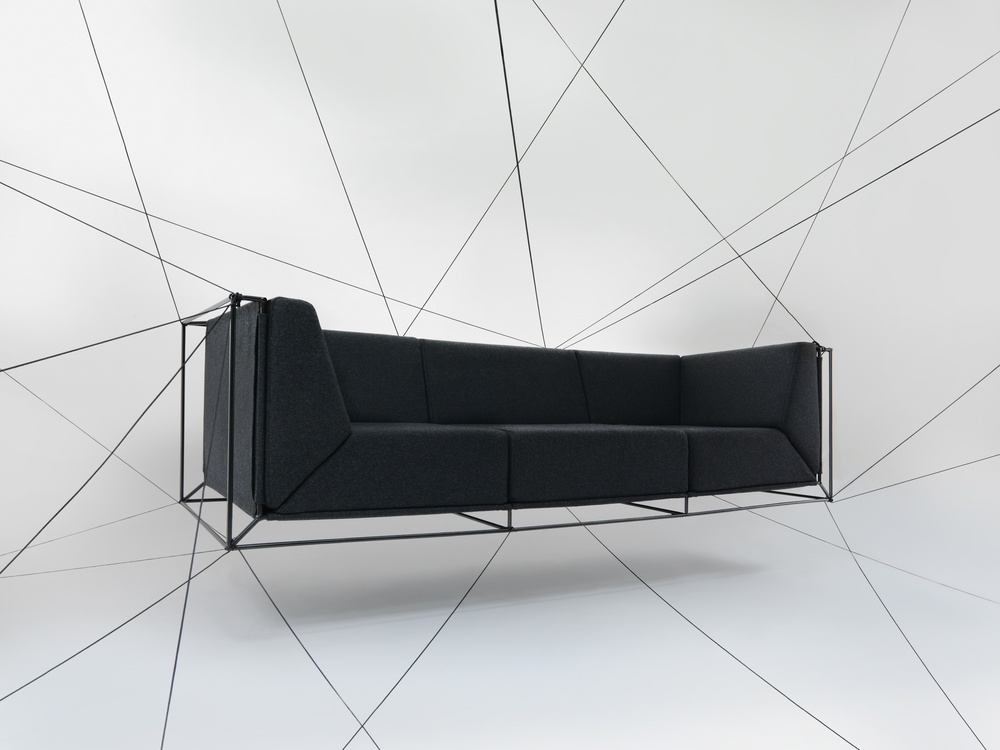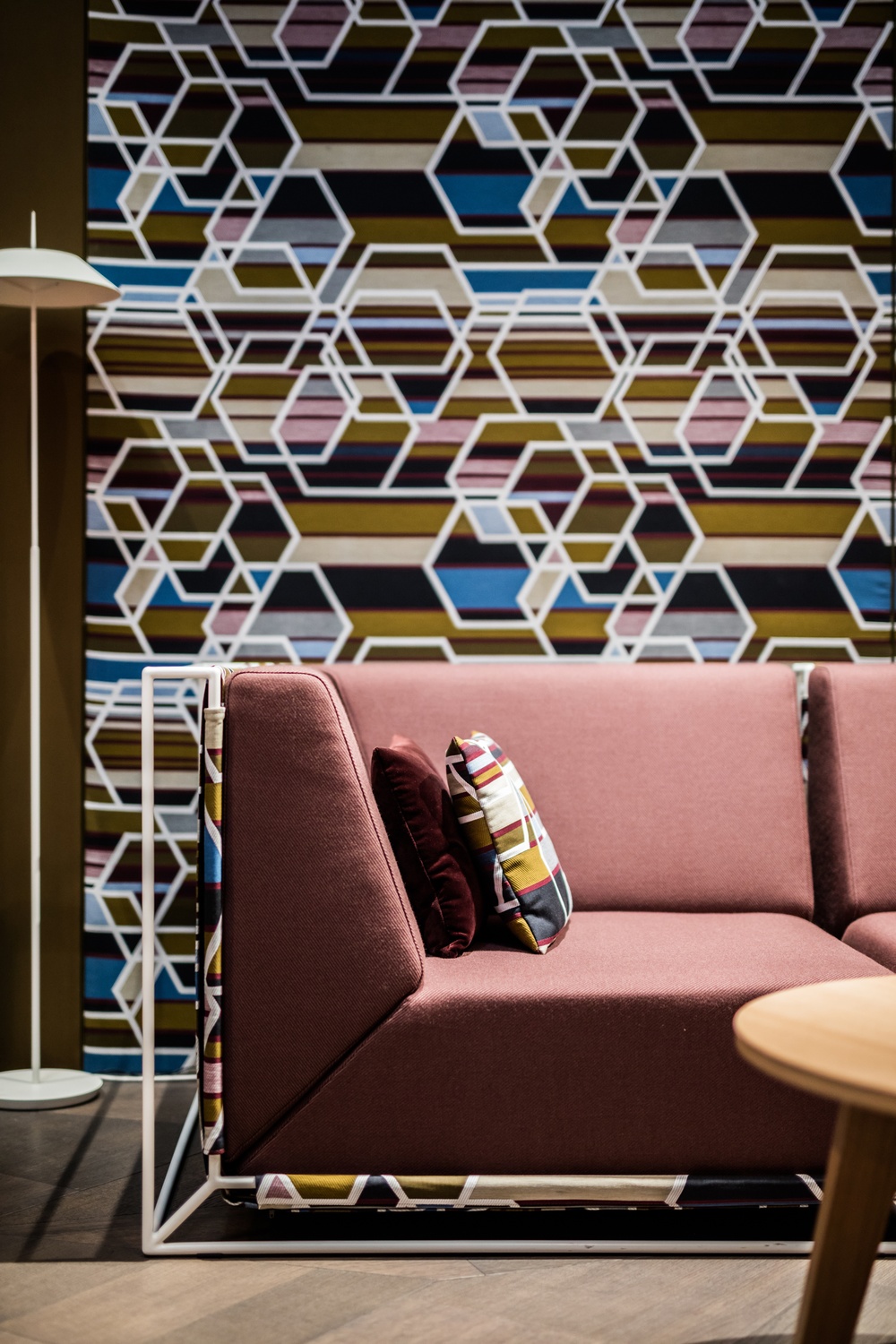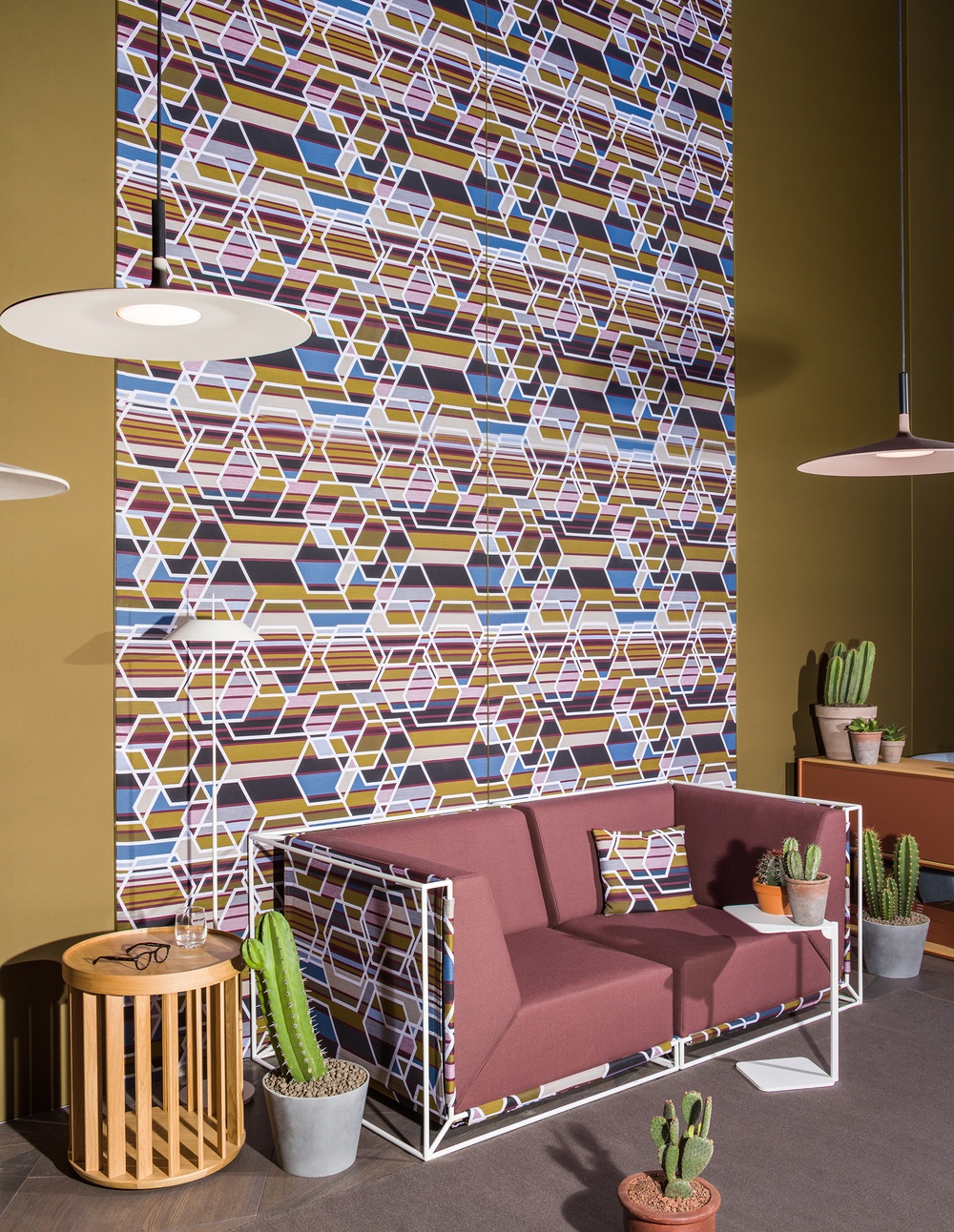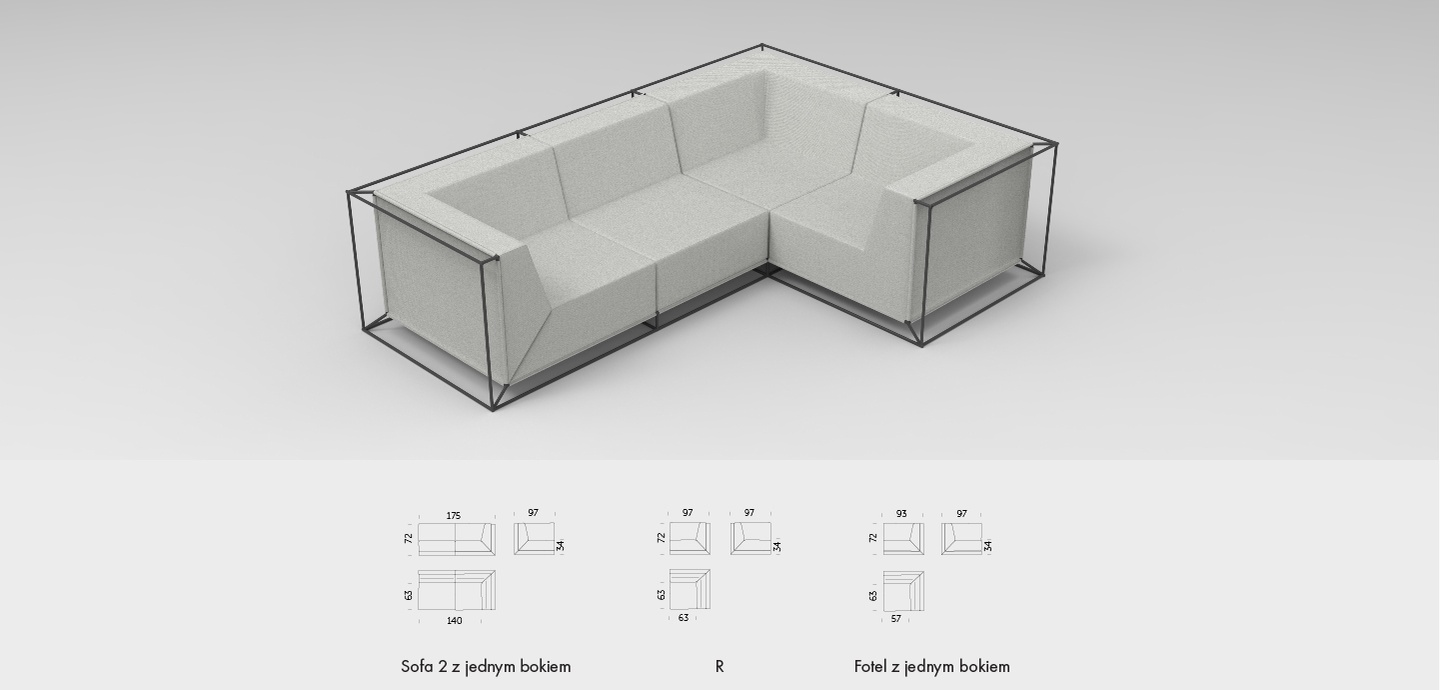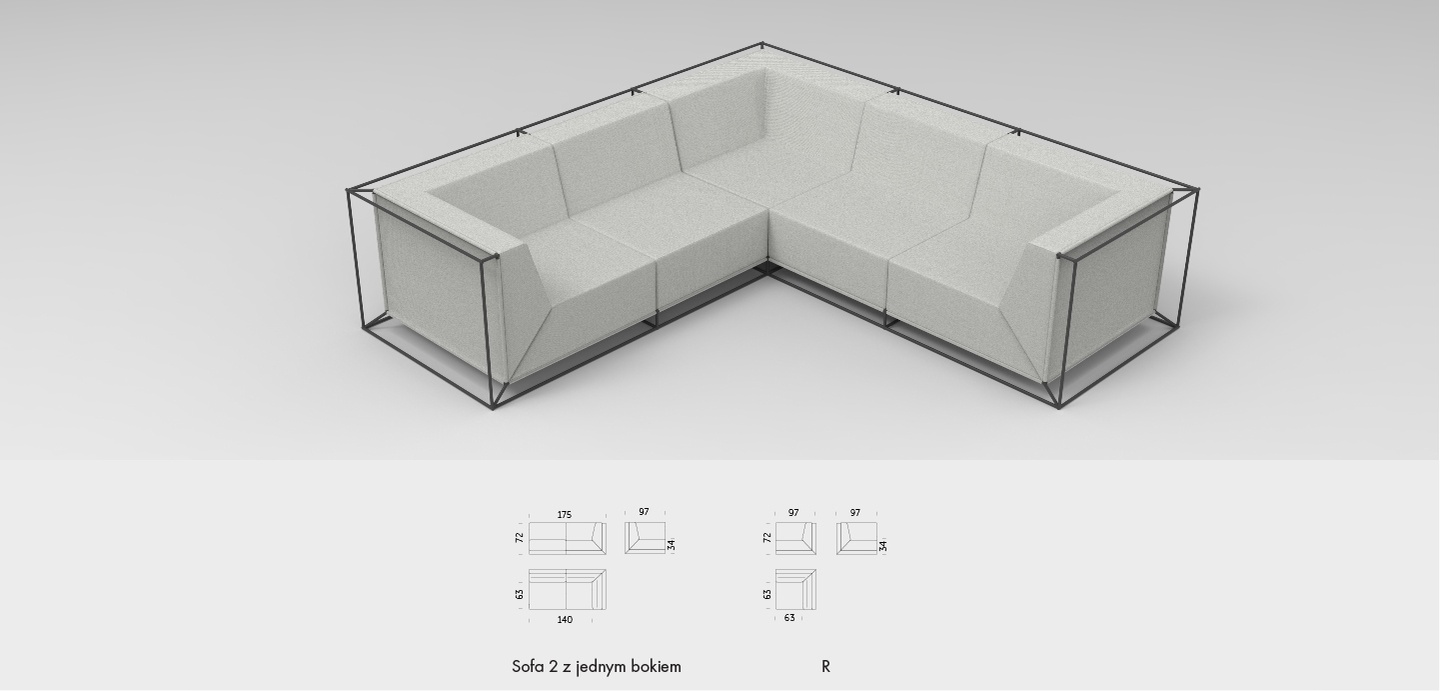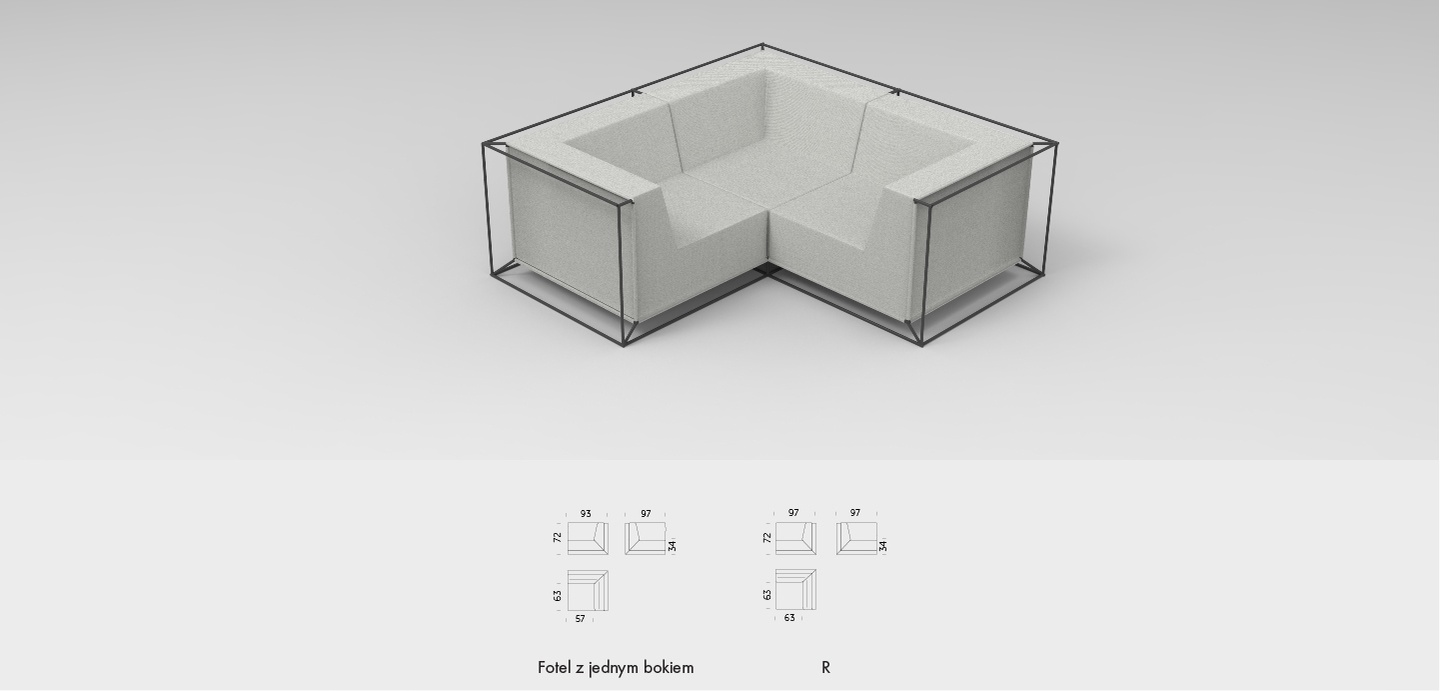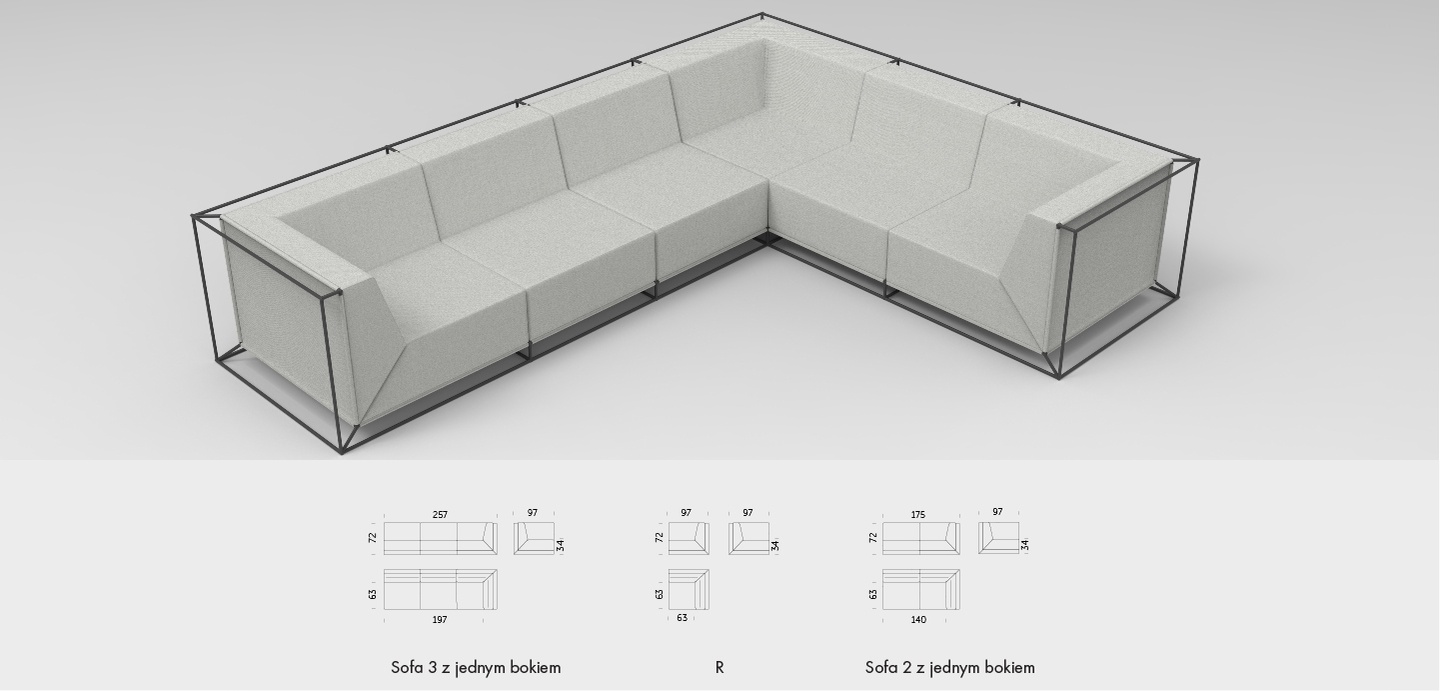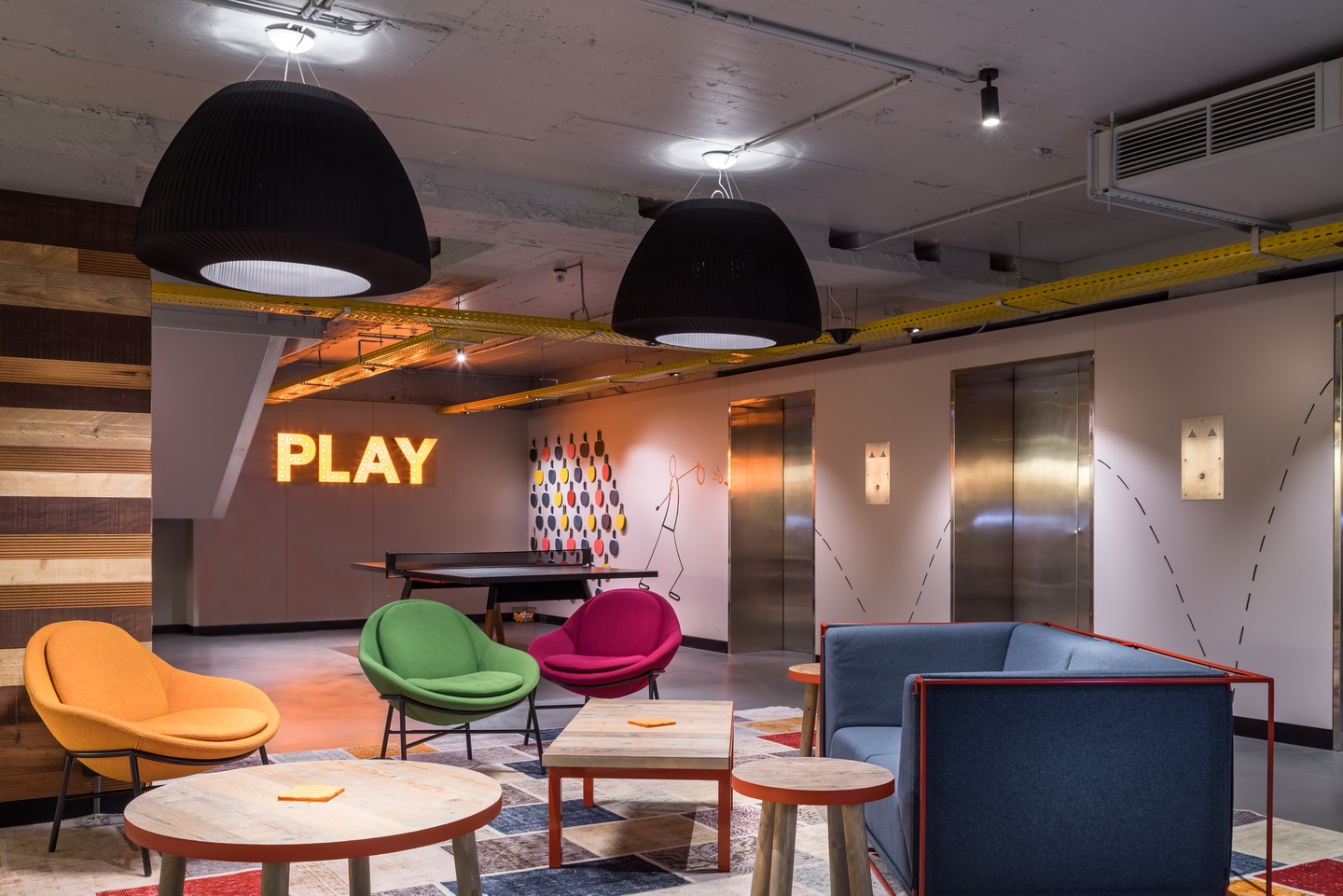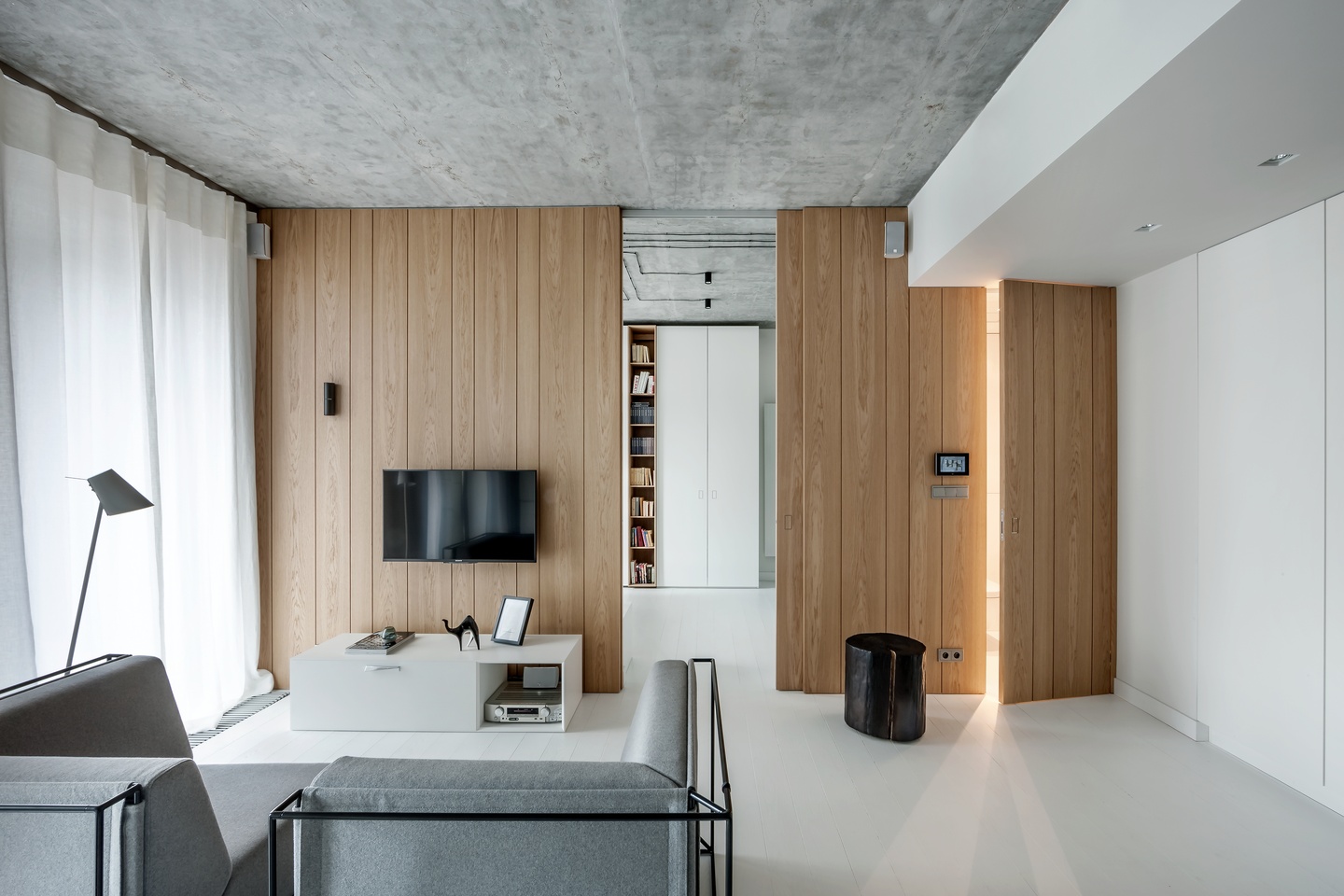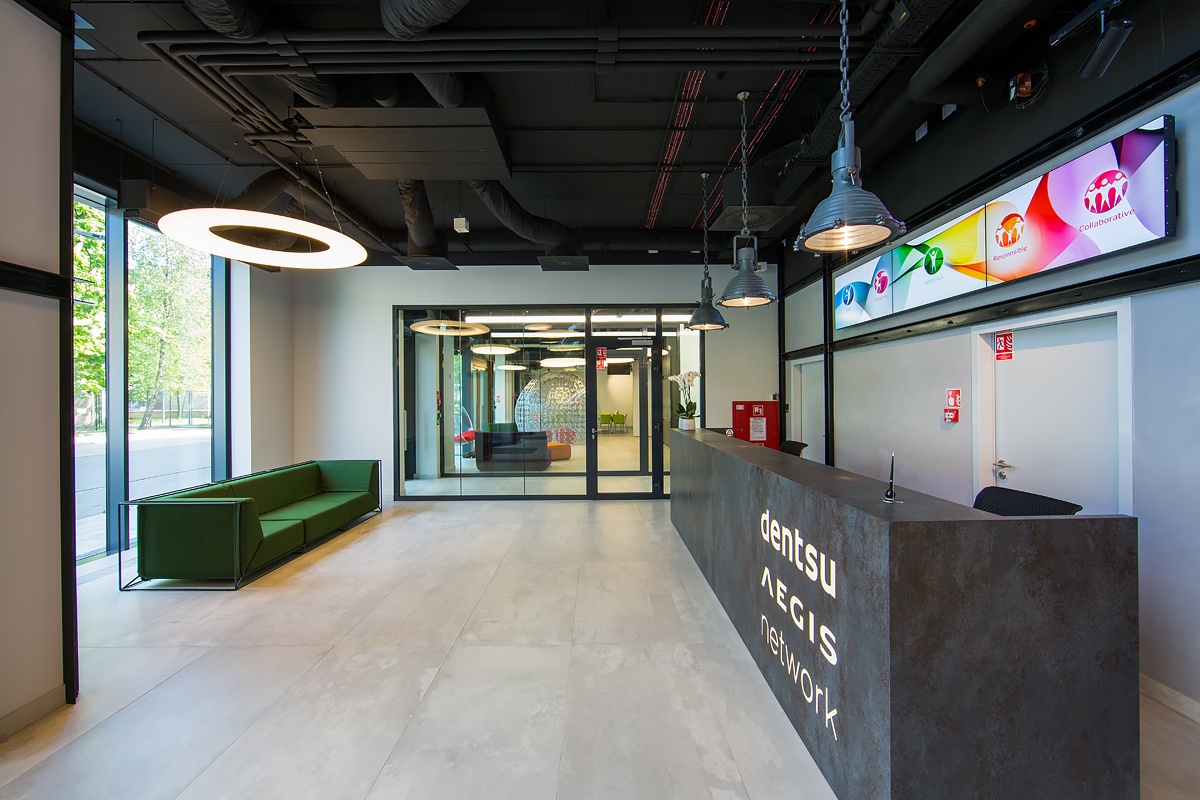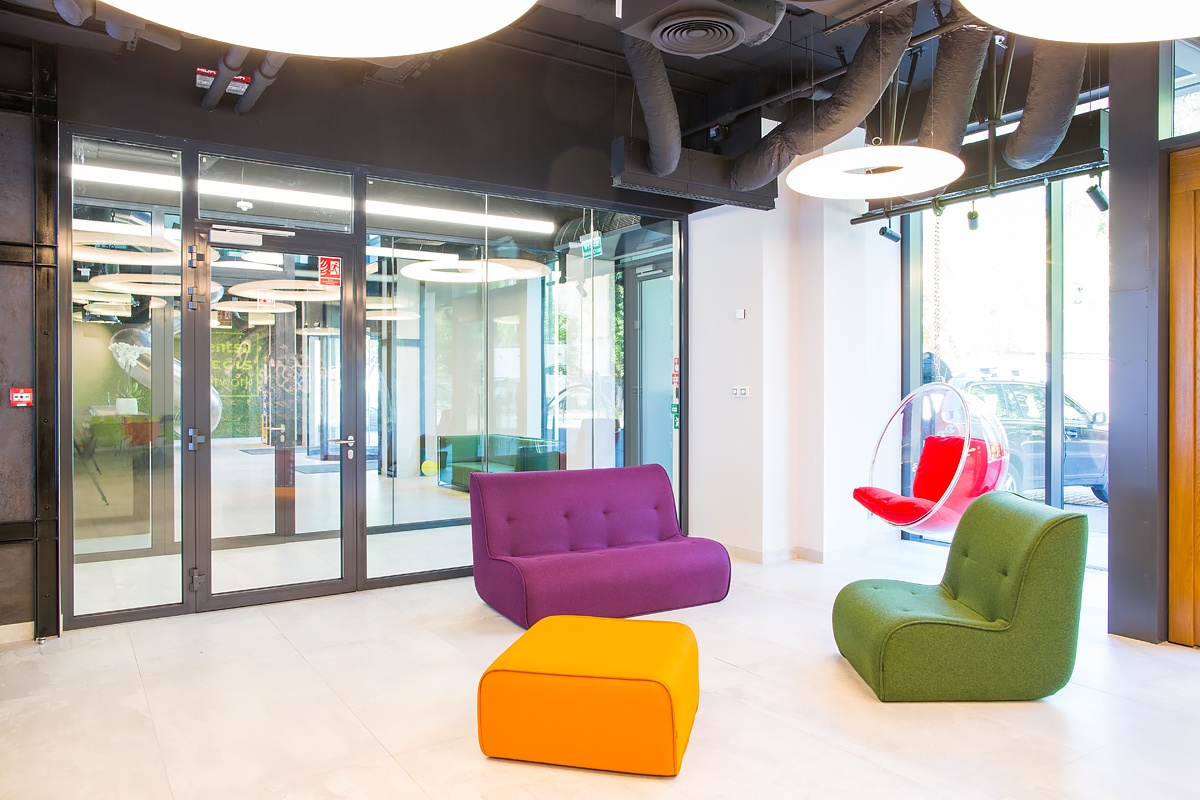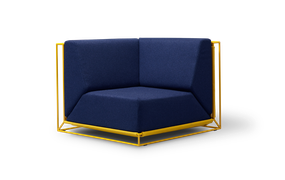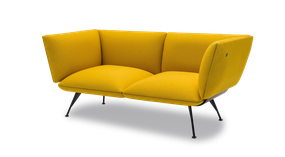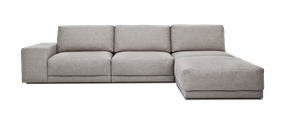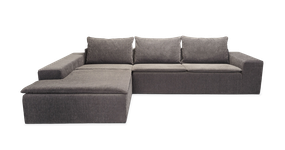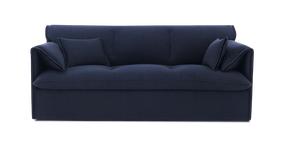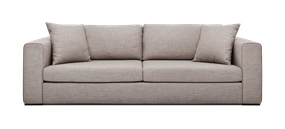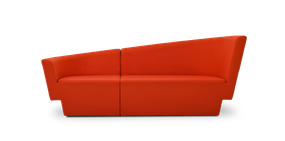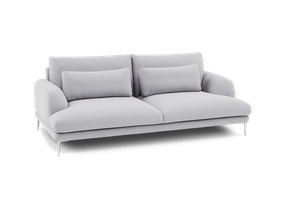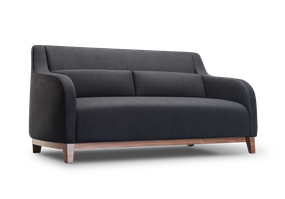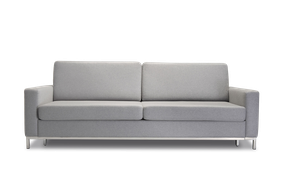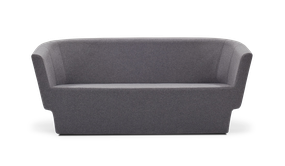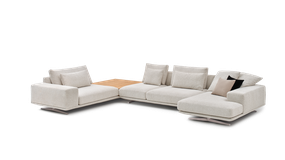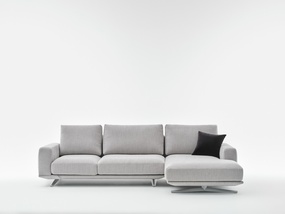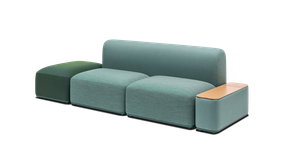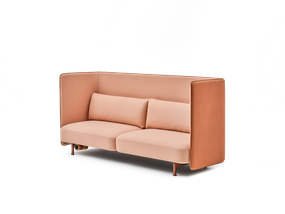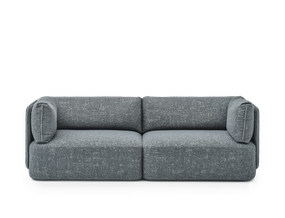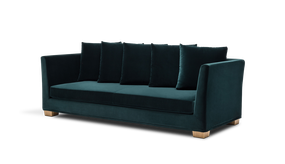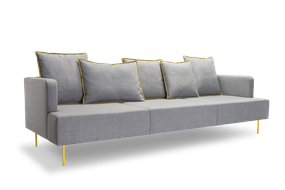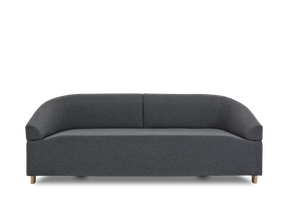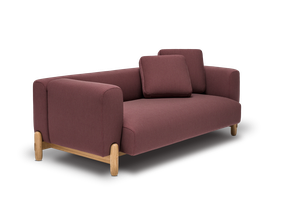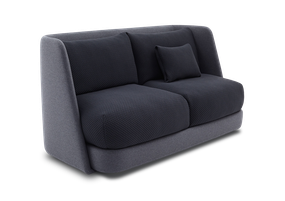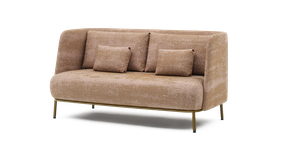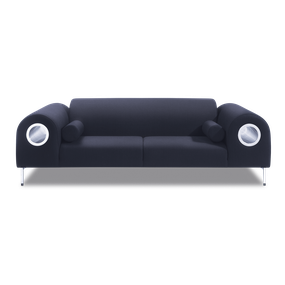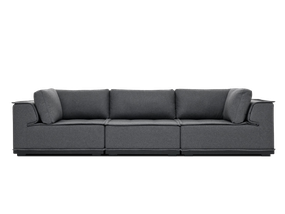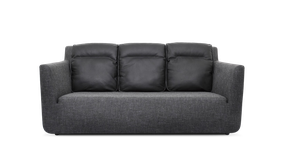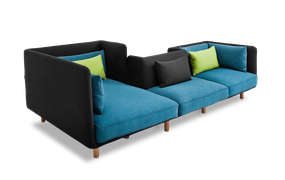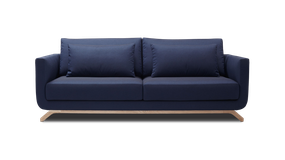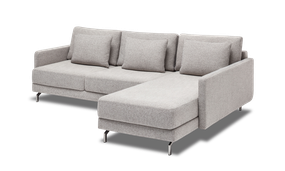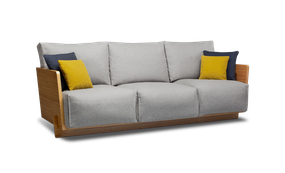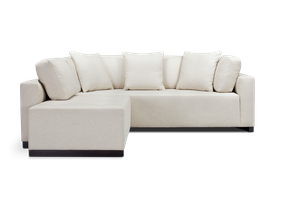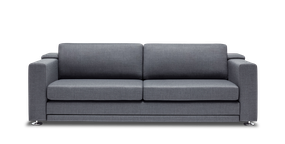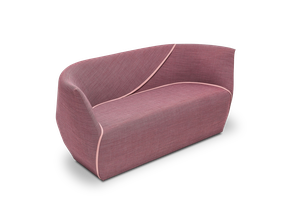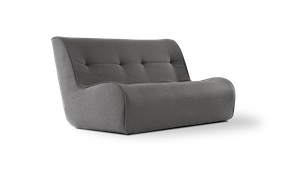Floating
"This very pure and simple form is surprisingly comfortable in use. The innovative solution that reveals the structure does not contradict or infringe on the classic topology of the sofa. This innovation does not rest on style, but on a search for new solutions. An interesting game is played between the external and internal elements. "
Download
Product specification
Files for professionals
Information
| Use | sofa for home interiors and public spaces |
|---|---|
| Structure | steel tubular frame, internal structure with plywood elements, frame in the colours from the RAL palette and the Sahara collection, copper, pearl brass and rust. |
| Seat | high-resilience foam, two levels of seat cushion softness available to choose from: soft and firm – please indicate your selection upon placing your order |
| Backrest | high-resilience foam |
| Base | plastic glides |
Proposed configurations
References
Genesis and inspirations
The design highlights the aesthetic quality of the structure visible on the outside. This is what makes the sofa appear to “float” in the air.
The Floating sofa emerged victorious from the first international furniture contest in Poland, the Future Classics International Design Competition, organised by Comforty in 2009, in which all submitted designs were prototyped in our factory. The final competition exhibition was held the same year at the Centre for Contemporary Art Ujazdowski Castle in Warsaw.
The jury, comprising Patricia Urquiola, among other figures, was asked to select the victorious product that offered the best interpretation of the competition’s motto: “future classics”.
Awarded the first prize and immediately launched in production, the Floating sofa is unrivalled on the market. Its originality and uniqueness give it a special place in the Comforty collection. Over the years, it has become a landmark of our design, characterised by harmony, boldness, innovativeness and deft fusion of history and contemporaneity.
Already at first glance, Floating, designed by Philippe Nigro, one of the most acclaimed contemporary French designers, invites associations with Modernism. France is undoubtedly one of the homelands of this style in terms of furniture design. Tapping into a solution that reveals the structure and turns it into a decorative element is an homage paid to Le Corbusier, the Swiss architect and father of modern architecture, whose Paris office and team (including Charlotte Perriand and Pierre Jeanneret, among other figures) also developed collections of groundbreaking modern upholstered furniture for the designed architectural structures. Many of them are available on the market until today. And akin to the architectural projects, these designs have become an inspiration for generations of designers seeking answers to the challenges of the contemporary era.
Exploring Le Corbusier’s archives, Philippe Nigro makes a step further. Not only is he fascinated by the idea of the complete disclosure of the structure, known for example from the LC sofa model, but he also reduces materials and structural elements in pursuit of eliminating materials permanently joined together (such as furniture board, resin, polyurethane glue, steel elements immersed in foam, springs). All connections between materials are reduced to the minimum, replaced with precisely matched foam edges, stitching and overlaying of fabric. The sides of this item do not contain any rigid elements, with only the bottom of the seat reinforced with a plywood panel. An impressive factor is the sophisticated elaboration of cuts and stitching of the fabric at key connection points between the fabric and the steel structure. Responsible for comfort are the ideally matched and cut blocks of highly elastic foam of appropriate density.
The revealed structure of tubes welded together with surgical precision carries another potential of Floating: the endless possibility of extending the sofa by adding new repetitive units. It is yet another asset that allows for customising its appearance and adjusting this item of furniture to the needs of the architectural design. Moreover, it does not weigh on the production planning structures in the factory as all elements are standardised.
This product invites associations with contemporary architecture, in which a key role is played by physics and precise mathematical-geometrical calculation. The decorative value and the form come as the result of these factors. Obviously, such approach necessitates as well-considered vision and consistency throughout all the stages of product development.
Floating harmoniously combines design qualities, such as modularity, customised appearance, optimalisation of materials and production, with reflection about the natural environment. The reduction of materials and permanent connections is meant to ensure an easier disassembly of the piece and allow for simple service repairs and optimal recycling. These are further qualities prioritised by Philippe Nigro in the Floating design, which came as his response to the motto of Comforty’s competition: “future classics”.
Enjoying unwavering popularity, the Floating series has gained more elements in the course of the years. The collection comprises a sofa, free-standing armchairs, and corner armchairs that allow for arranging vast corner sofas.
Two types of comfort are available to choose: firm, which is better-suited for public and office spaces, and soft, which is ideal for the home. Visible steel elements are available in colours from the RAL palette. Further customisation is made possible by upholstery, in which choices can be made between contrasting colours of the sofa’s sides and seats.
